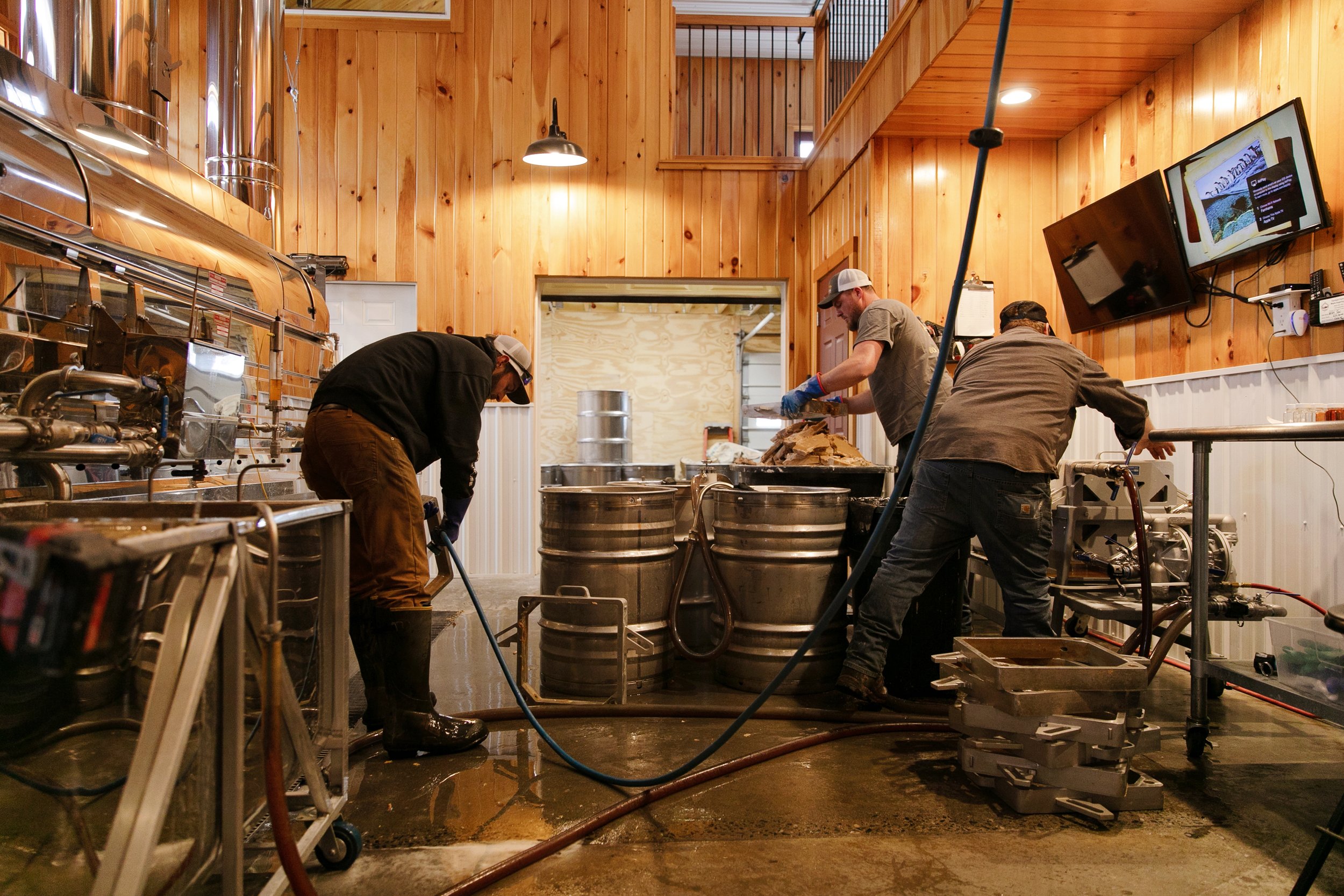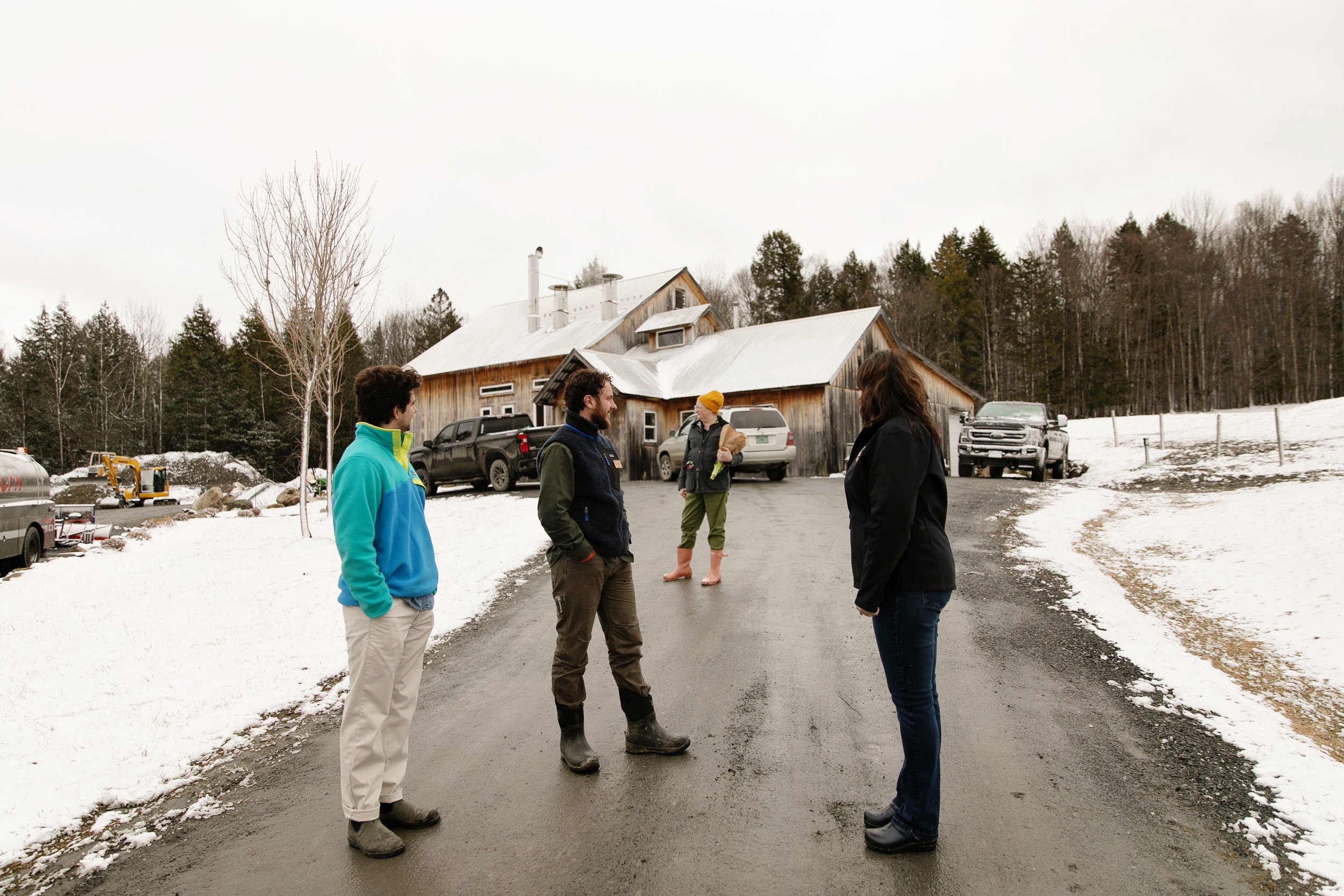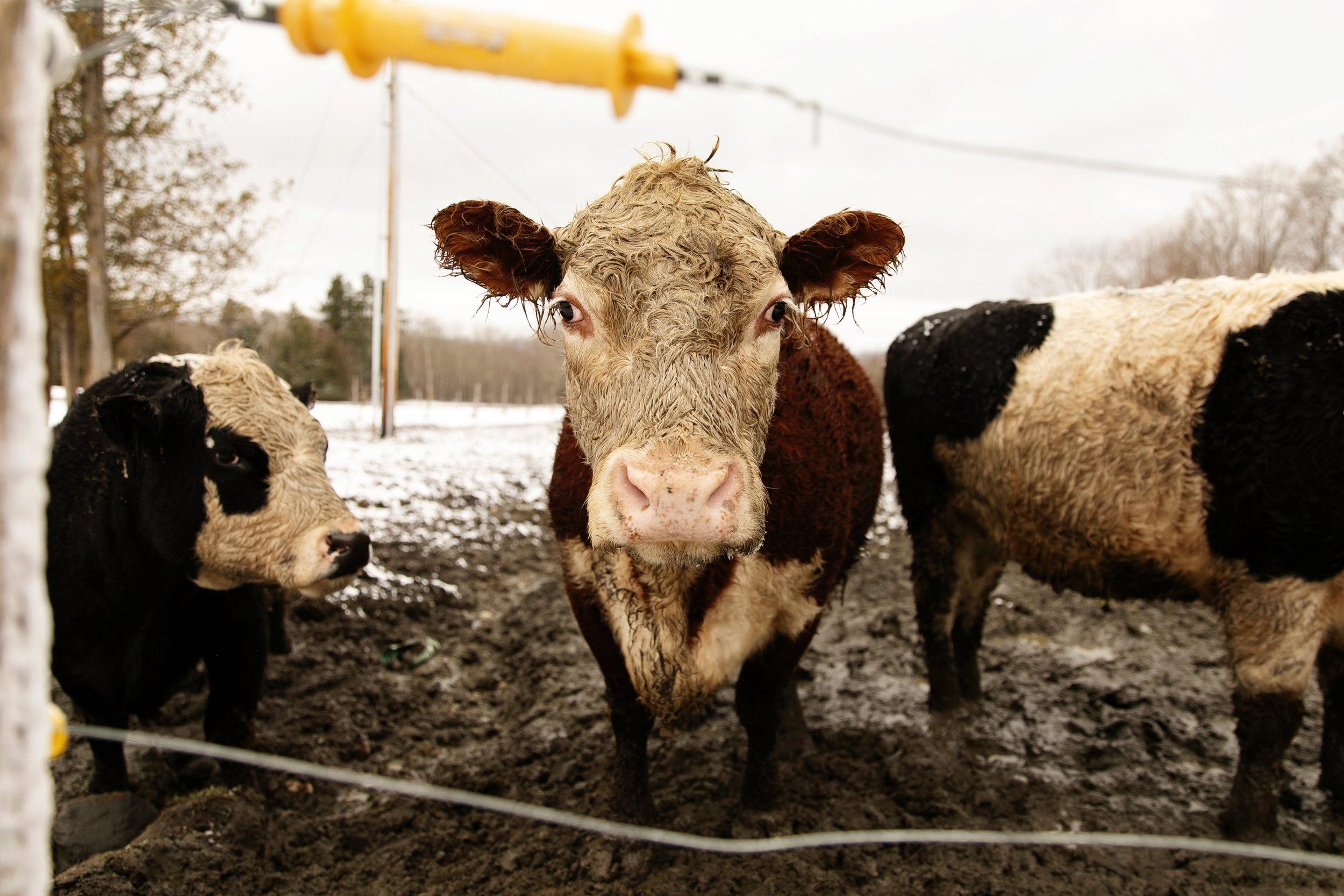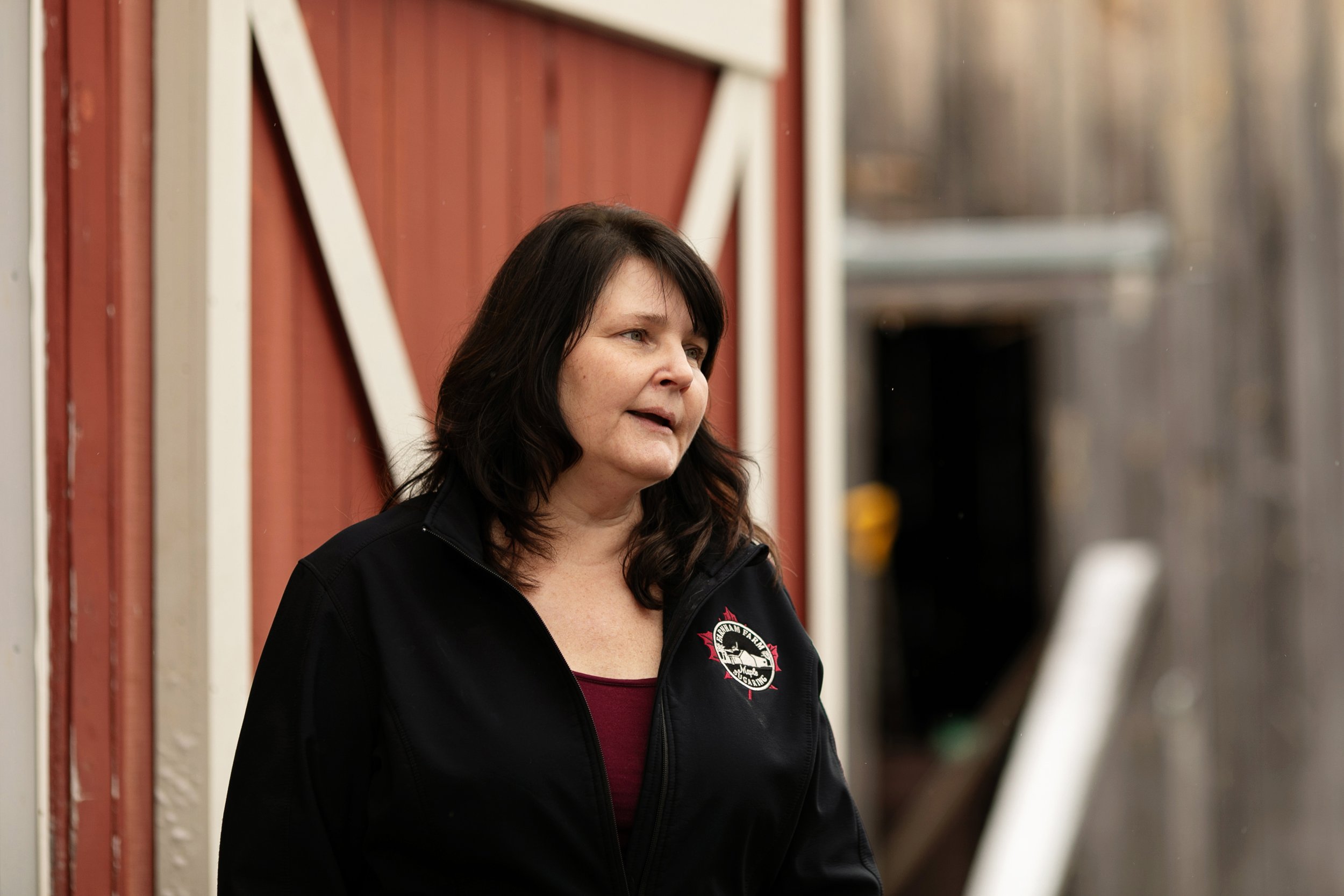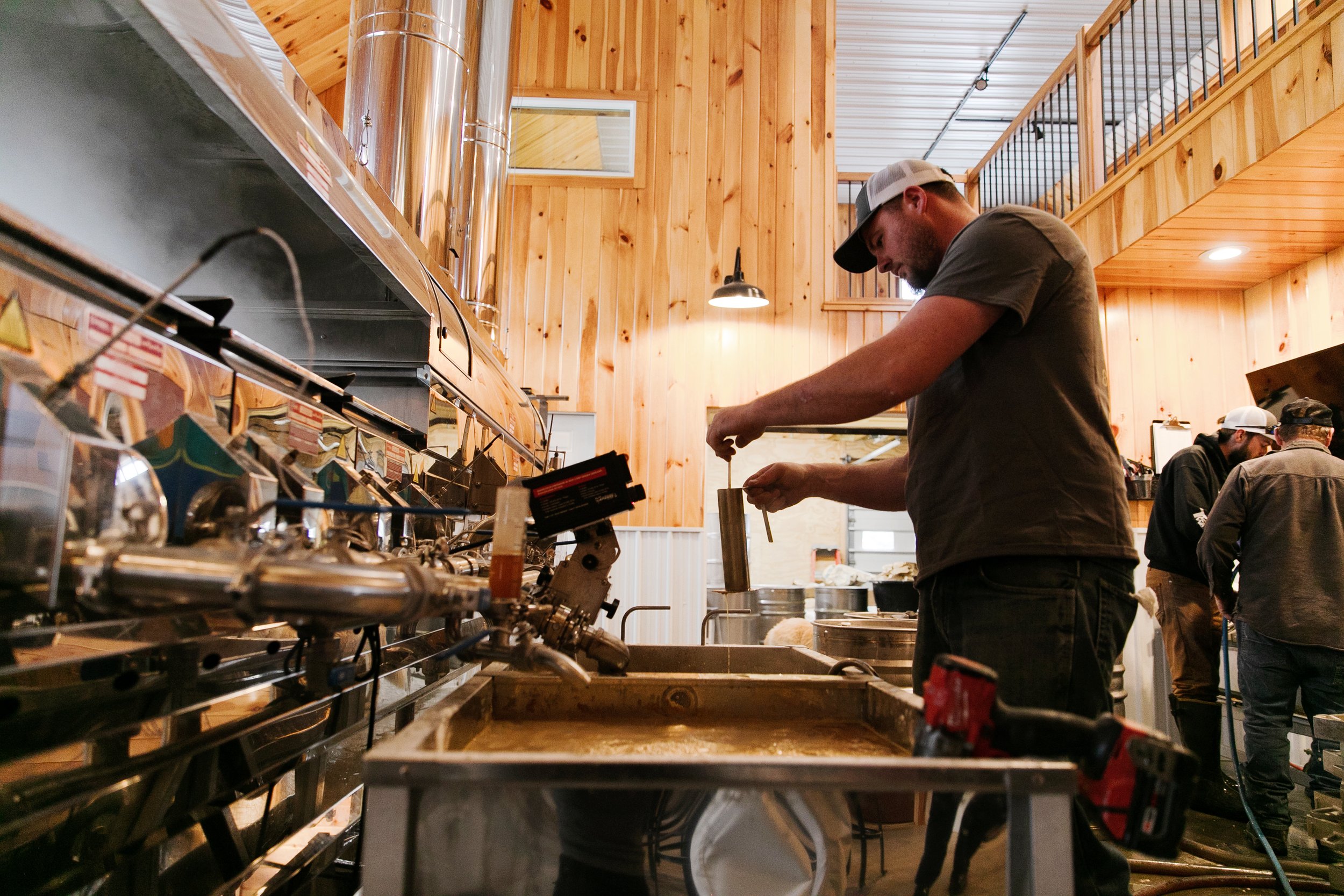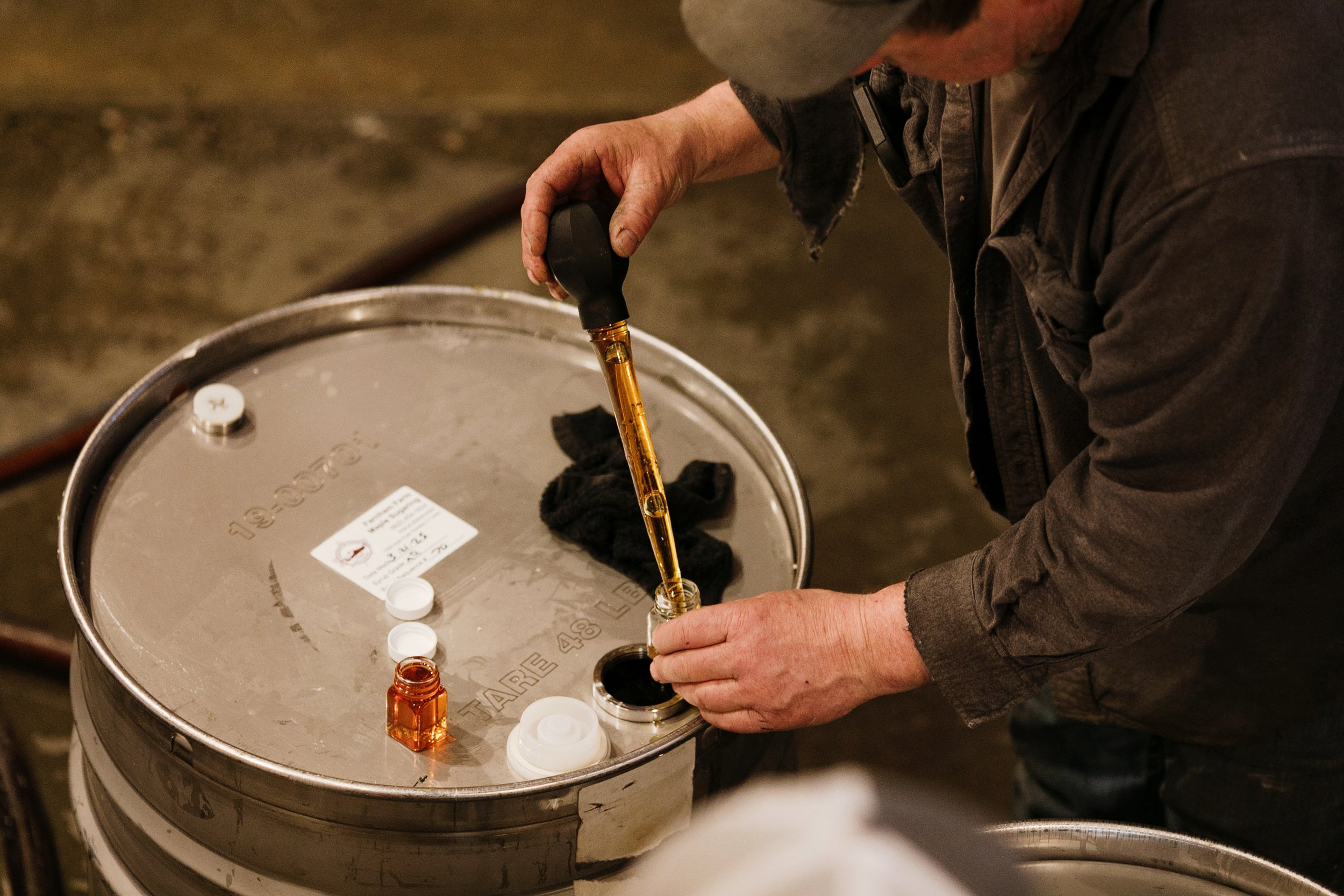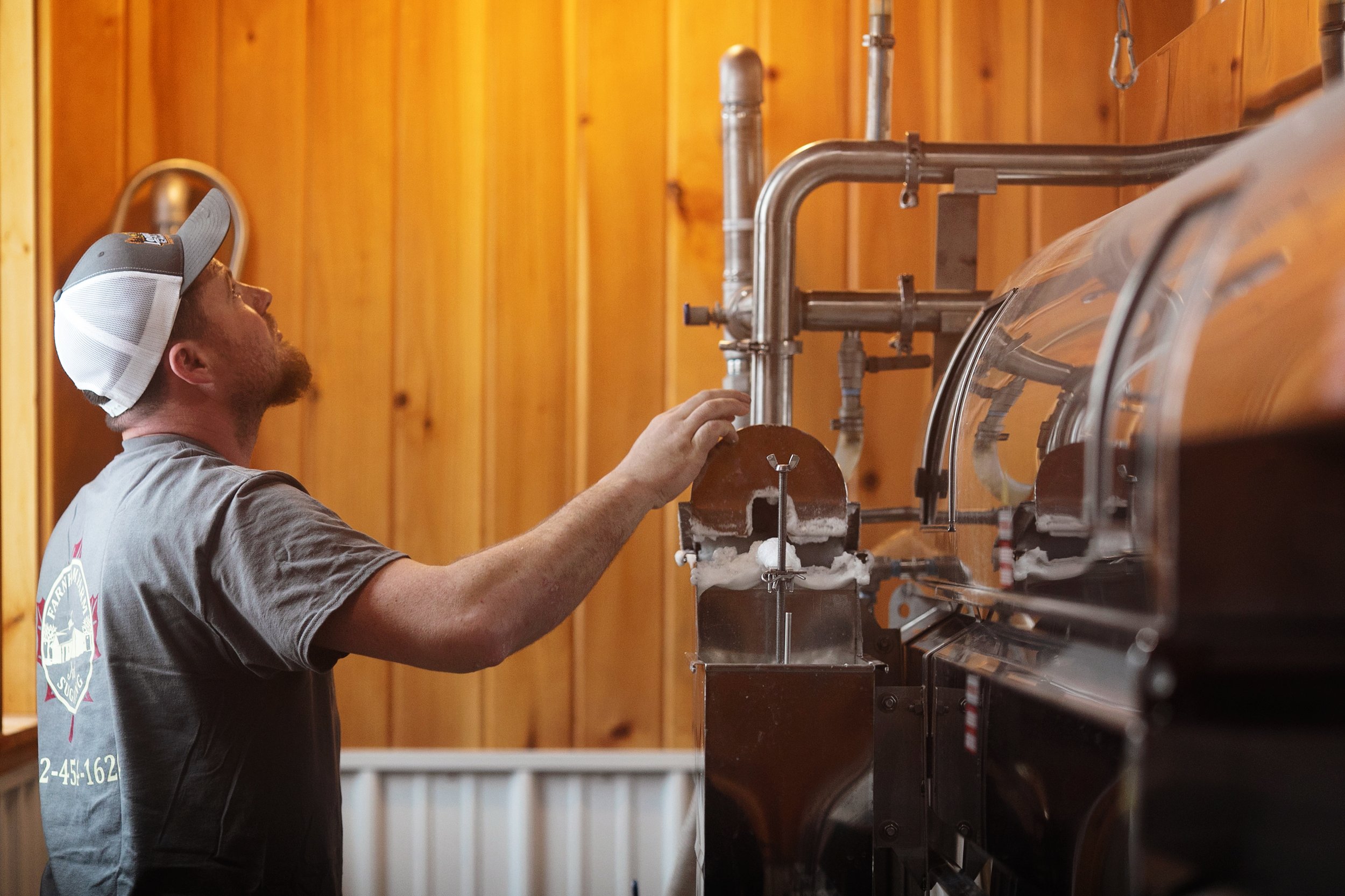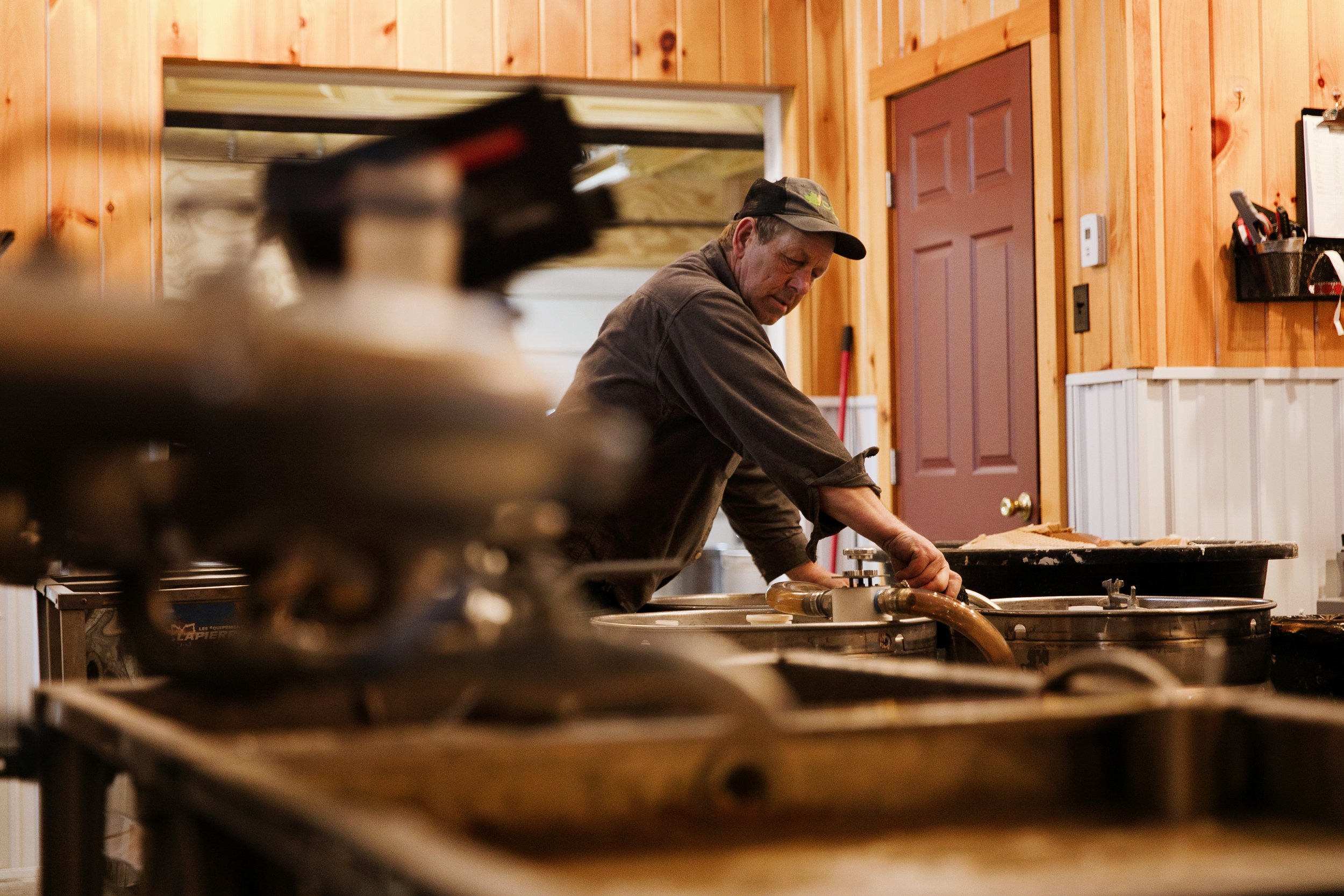This feature by Central Vermont Economic Development Corporation is made possible in part by a grant from the State of Vermont through the Agency of Commerce and Community Development.
Vermont is “Forest Strong”
Vermont is “Forest Strong.”
Almost 80% of Vermont is covered in forests and nearly 3 million acres of these forests have been under some form of long-term sustainable forest management. Vermont and the neighboring Northeastern states are in a unique situation. There are only four areas on the planet that have this high-value northern temperate type of forests, and Vermont forests are at such a level of maturity and management, they now contain some of the finest timber resources in the world.
We depend on these forests for myriad benefits. Water and air are filtered through forests, improving water and air quality. Carbon is absorbed and stored in our forests, helping to reduce greenhouse gas influence on our climate. Wildlife depends on forests for habitat and thrive in the managed forests of Vermont. Our rural economy is strengthened by an active forest products industry that provides over 9,000 jobs and boasts a gross domestic product (GDP) of over $1.4 billion of direct output.
Maples are the dominant tree species in many of our forests. Sugar and red maple mixed with other associated hardwoods make up 71% of the forests in Vermont. It’s no wonder that a vibrant maple sugar industry is so profound in Vermont. The maple sugar industry is a major contributor to the forest-based economy.
Vermont ranks No. 1 nationally, producing close to 3 million gallons of pure maple syrup annually, which amounts to approximately 45% of the production of maple syrup in the entire United States.
Maple sugar supports over 4,000 jobs and exceeds $54 million in revenue. Maple is a large reason for tourism attracting thousands of visitors to observe the making of Vermont maple syrup and other maple sweets.
We celebrate our forest products and maple sugar industries for their contributions to our economy, the beauty of our working landscape, and our way of life.
Therefore, as long as we can continue to manage forests to be resilient and healthy, we can thwart the many threats such as insect and invasive species attacks, climate changes and extreme weather events. It is because of these uses we can, with confidence, keep Vermont’s forests as forests.
Ed Larson of Montpelier is a consulting forester and current Chair of the CVEDC Board of Directors
From Maple Trees to Maple Gelato
We join a fearless group of middle schoolers from maple trees to maple gelatos.

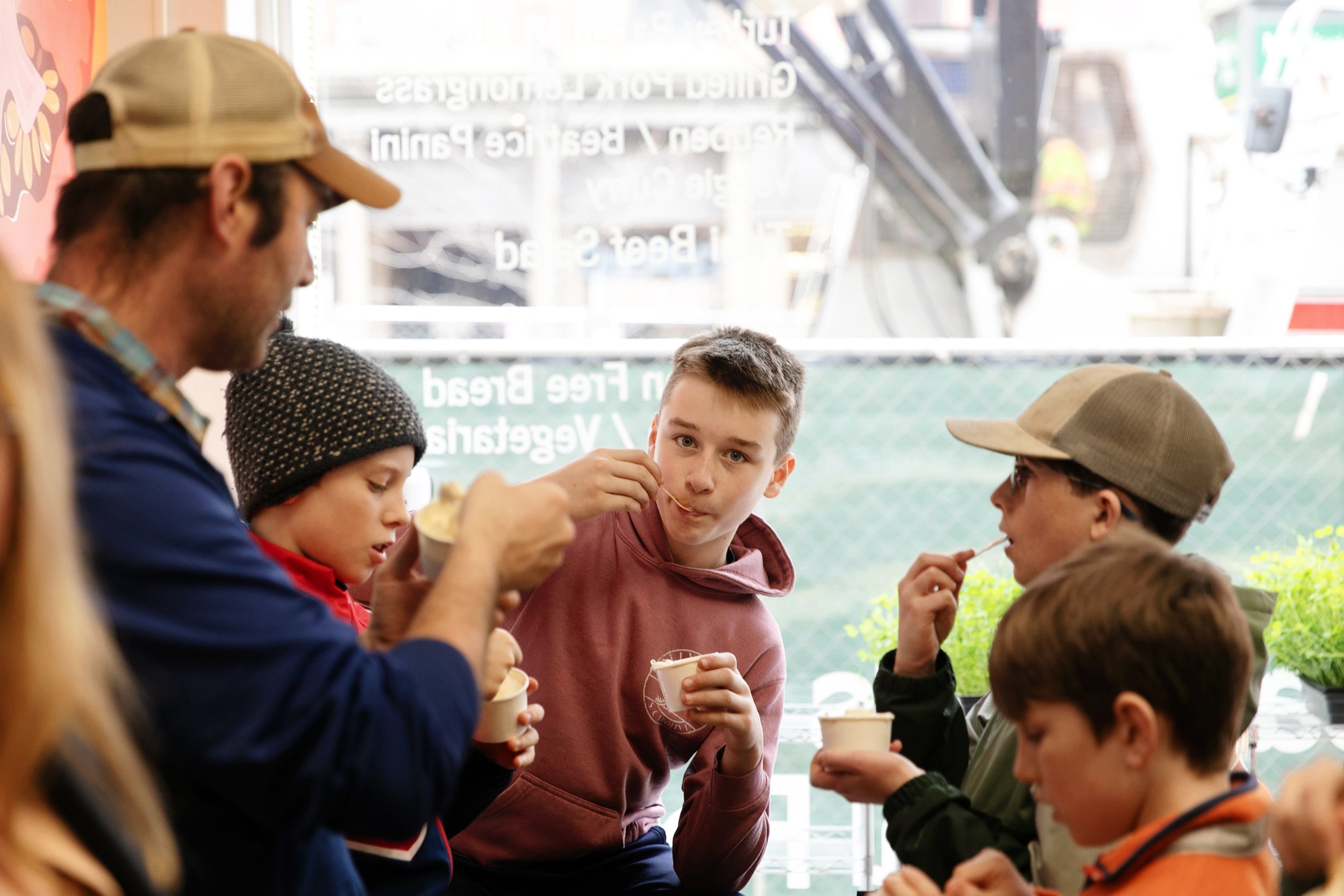
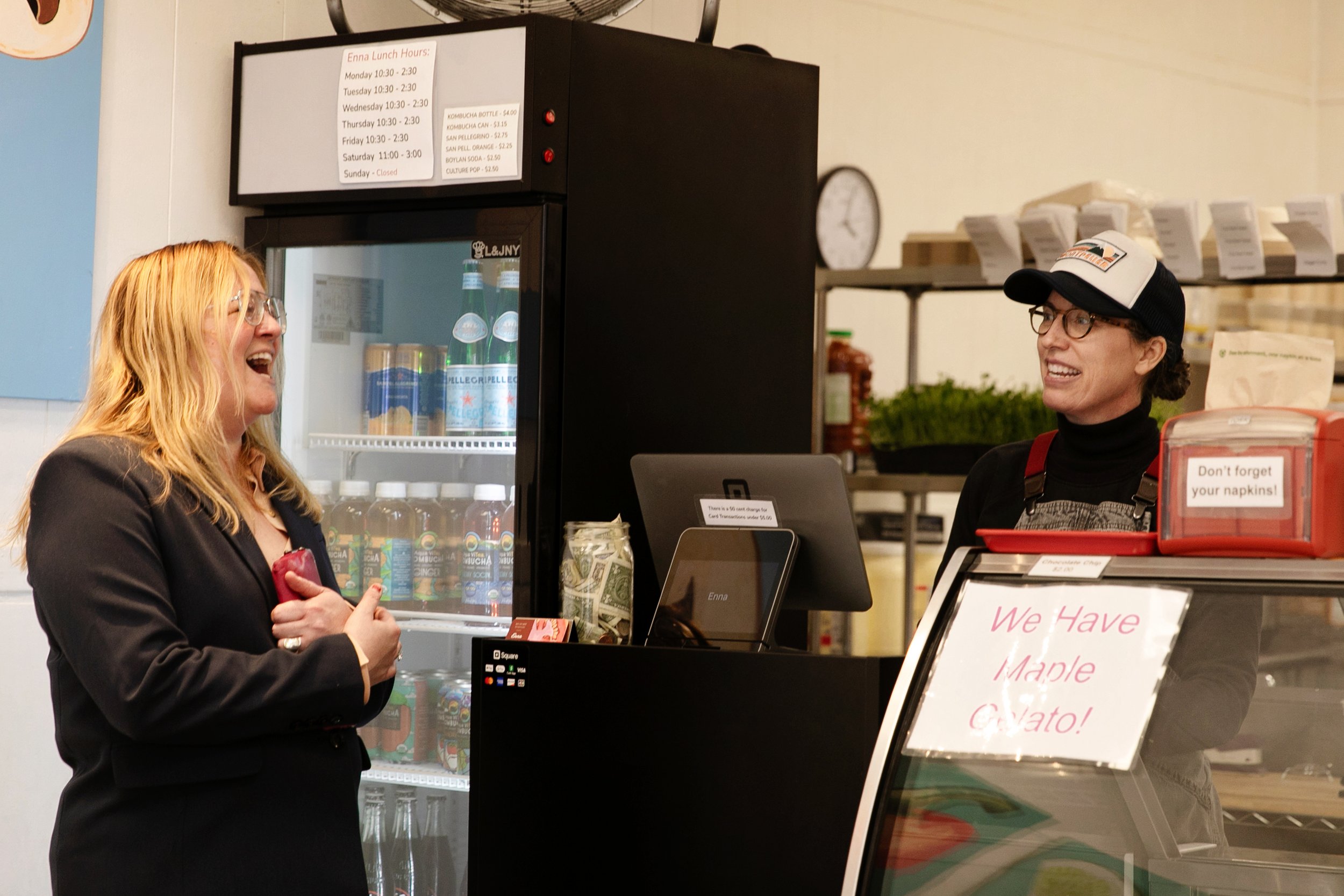

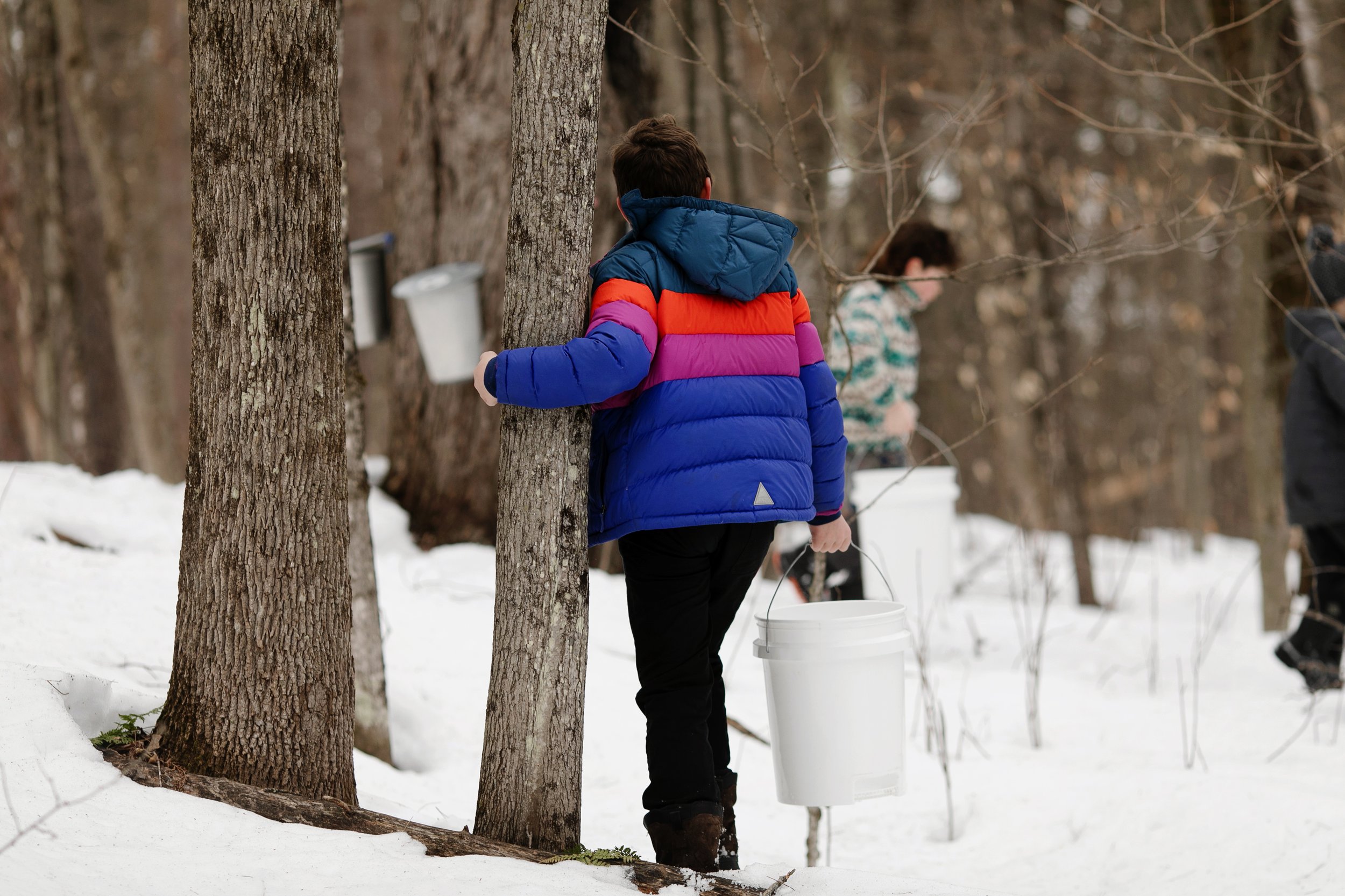
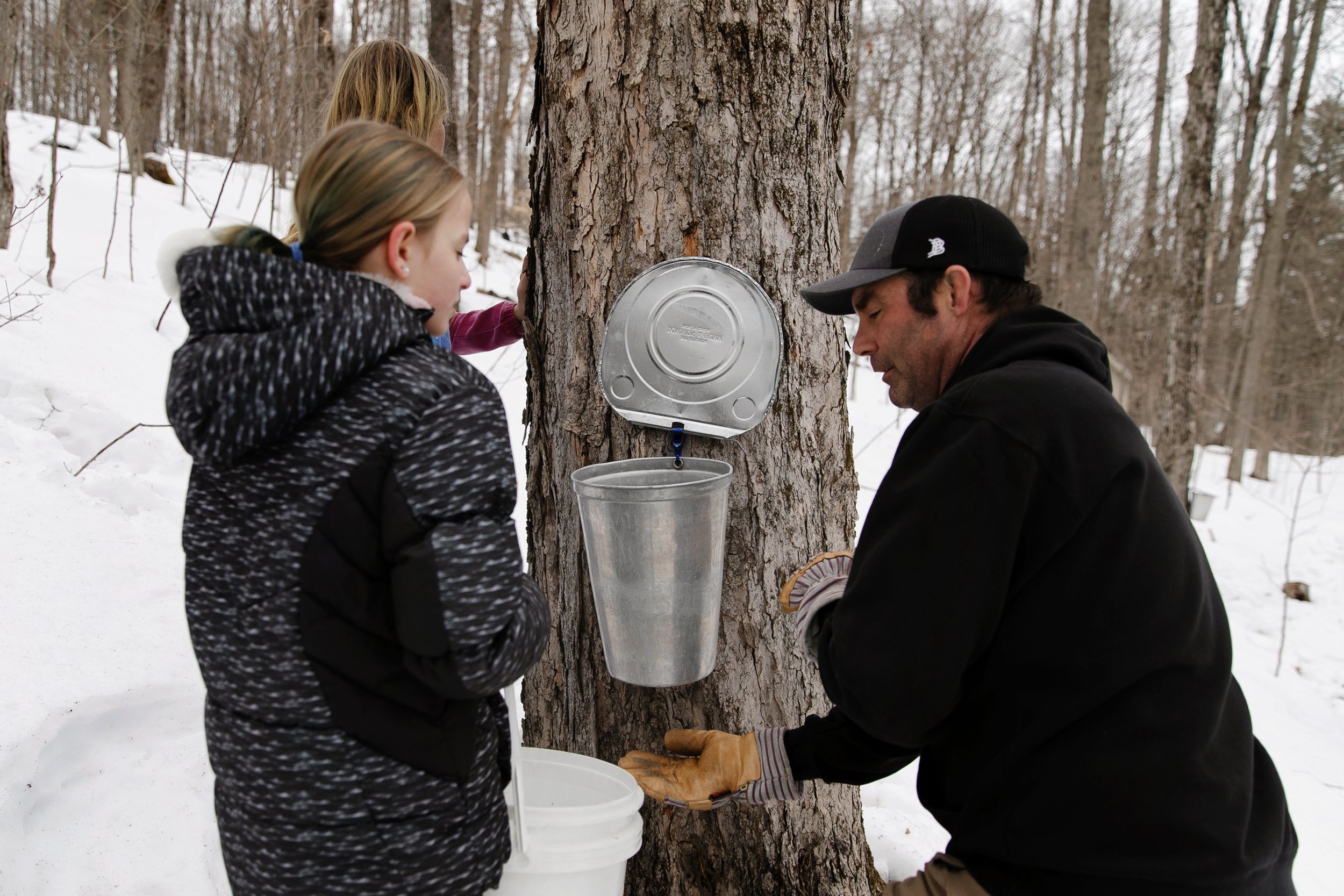






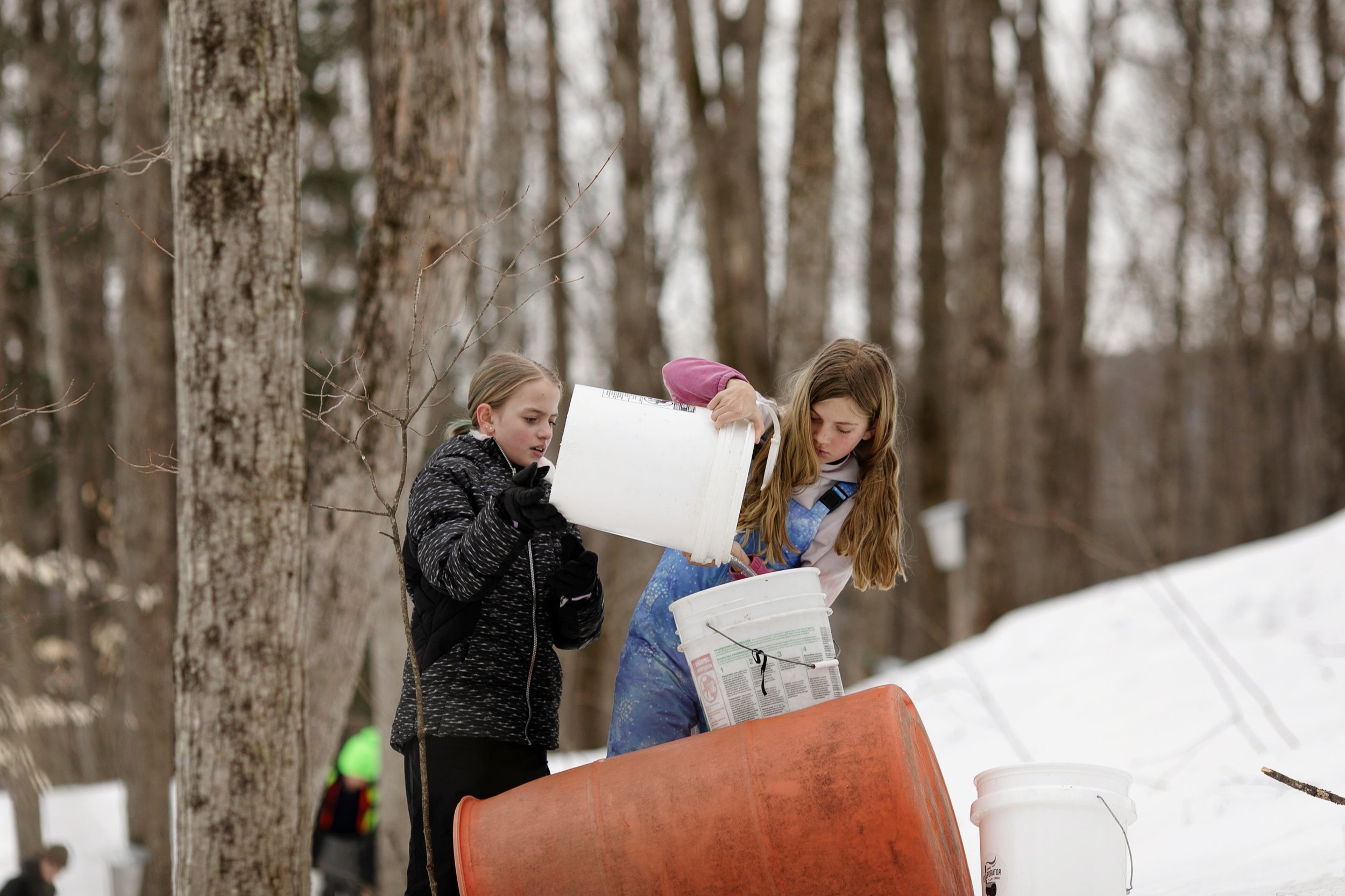


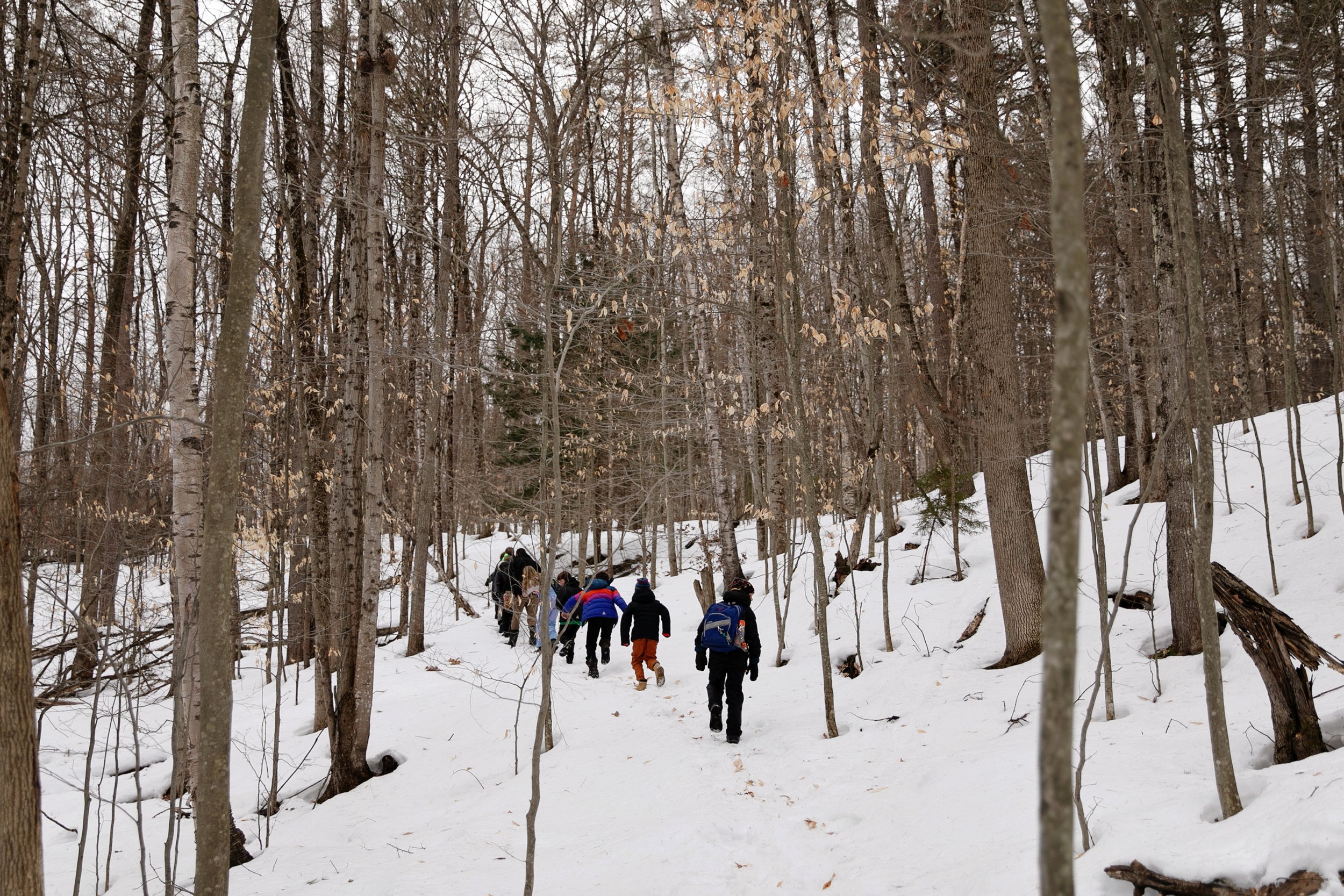


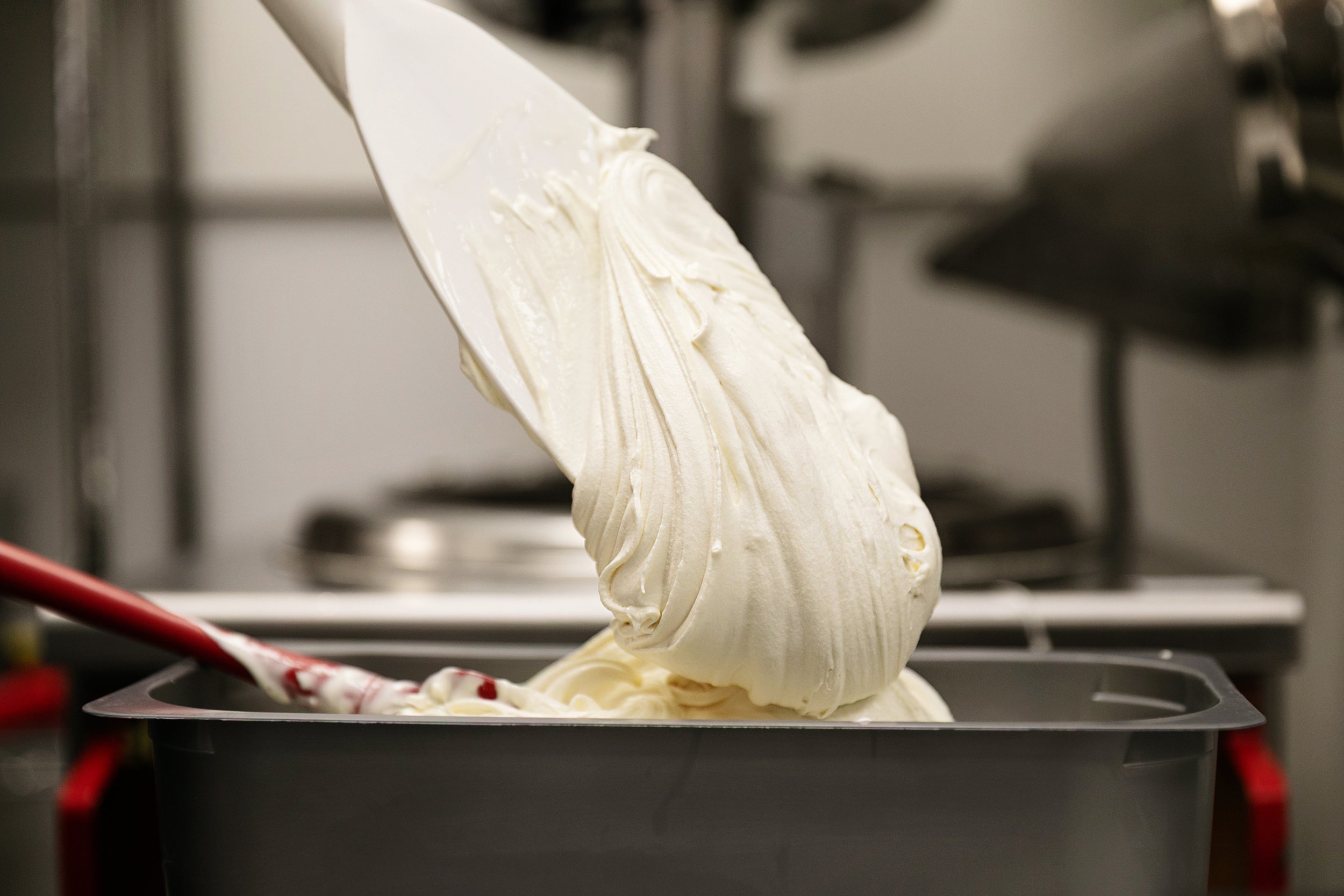




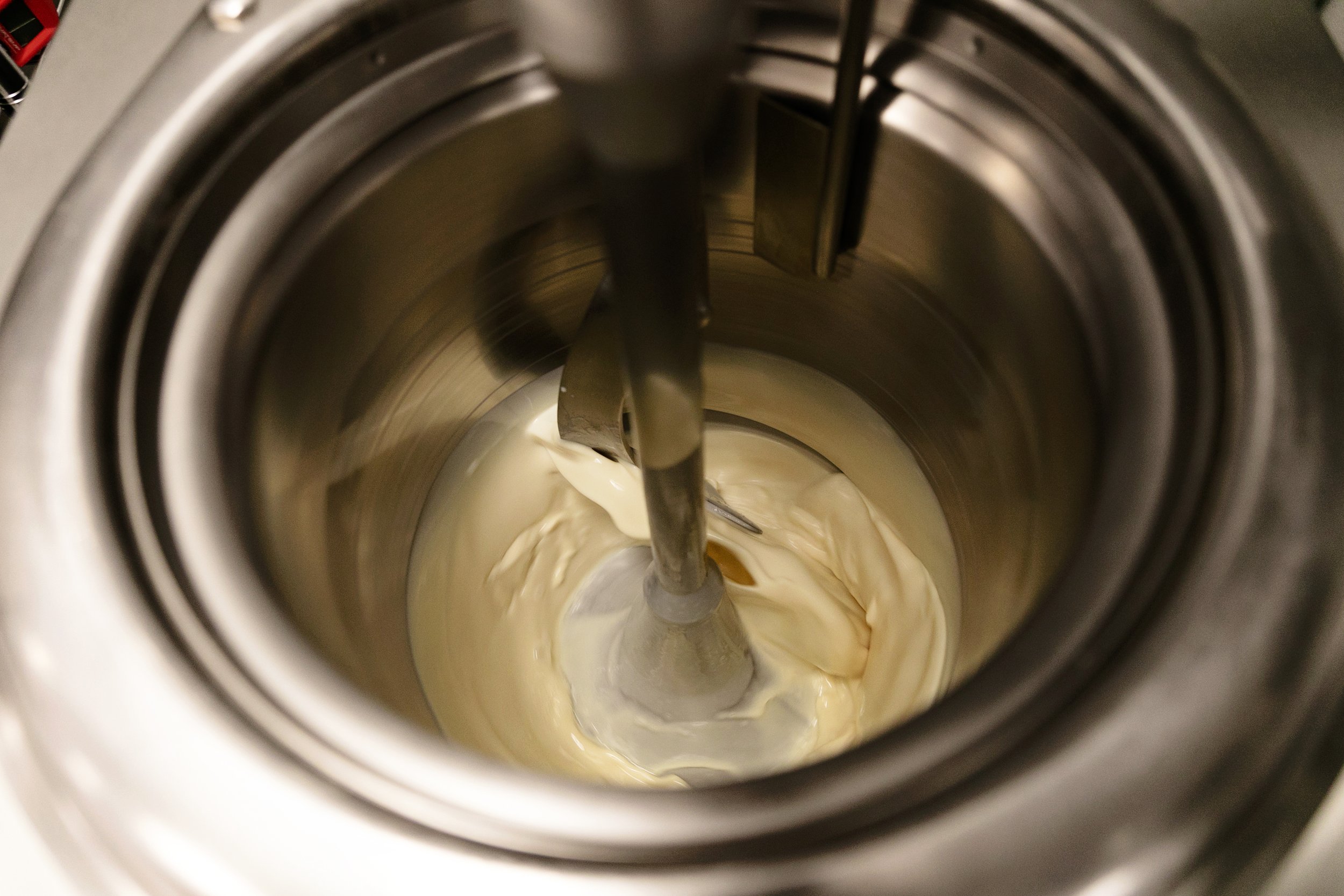


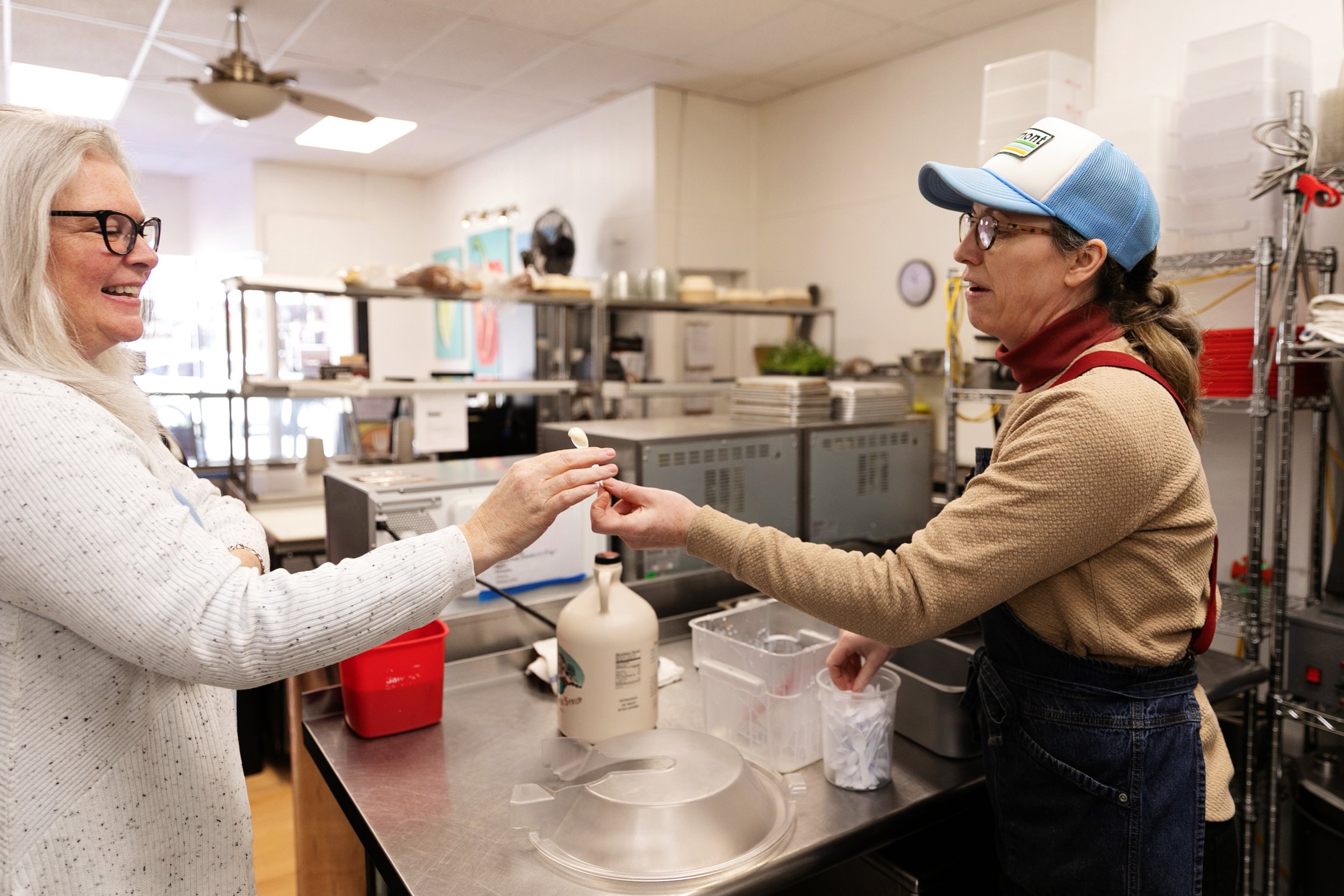
Drew has a big picture view of what collecting sap outdoors means for his students. He has been teaching at Montpelier Middle School for more than 20 years, and the sustainability after school program is something extra he does.
Drew explains that the sustainability program gives kids hands-on experiences that help them think about concepts like survival, the world around them, and what we get from nature.
The program also connects to the community also. Drew’s students have worked on projects to provide food for community members and learned about ways people can get support if they need help getting enough to eat.
The tapping equipment is supplied by Kate Whelley McCabe, the owner of Montpelier-based Vermont Evaporator. Kate invented a home evaporator that fills a gap between a stovetop evaporator and a commercial-sized evaporator. She has been manufacturing the home evaporators in Montpelier for the last 10 years.
Vermont Evaporator strongly values giving back, and has pledged portions of its revenue to Native American organizations for the past seven years.
“The original inhabitants of North America discovered how to make maple sugar and passed on that knowledge to European immigrants,” Kate told us. “All of us who work in the maple industry benefit from this knowledge transfer on a daily basis, on land where they discovered maple thousands of years ago.”
Shannon explained the science that makes gelato churn into such a creamy consistency, the way the fat and air are different in the recipe. She creates a wide variety of flavors that are traditional to gelato’s Italian origins as well as flavors from everywhere in the world, including maple from Vermont.
Shannon’s business shares many of the principals both Drew and Kate described. Shannon uses fresh ingredients that celebrate what we find in nature, and also links her work with food to ways of supporting the community around her.
She also values learning and kindness, two values that come together pretty well for Shannon’s gelato business. I’ve witnessed quick lessons in math, friendship, flavors, and being brave at her counter.
Farnham Maple Sugaring
At Farnham Farm Maple Sugaring in Plainfield, a skilled team comes together once a year to make maple.
They have beautiful animals outside, the kind of cows that dance up to people with excitement. Inside, the syrup production is a super well-oiled machine. The timed and precise efforts of Kevin and several workers boil sap for us to see.
It was incredible, and the only live sap boil we got to see on the tour. It’s not easy to predict exactly when a boil will occur for an economic development director and her team to get to see it live, but the Farnhams have the science down so well that they get it right to the minute, and we get to see the magic.
Tammy tells us incredible stories of the many generations of Farnham families that have been on the hill, all caring for the land. Three generations mingle with us at the sugar house.
Tammy also shared the story of starting off maple production on the farm. When her daughters were young, she told me that another farmer had permission to tap the trees.
The girls noticed the sap buckets were overflowing and hadn’t been collected when they got off the school bus, and they took charge and collected the sap themselves.
Now the farm produces syrup from its own sap and for other farmers, a common way different maple makers consolidate their work for efficiency and cost.
Caledonia Spirits
Caledonia Spirits treats us to a tour and their own maple celebration.


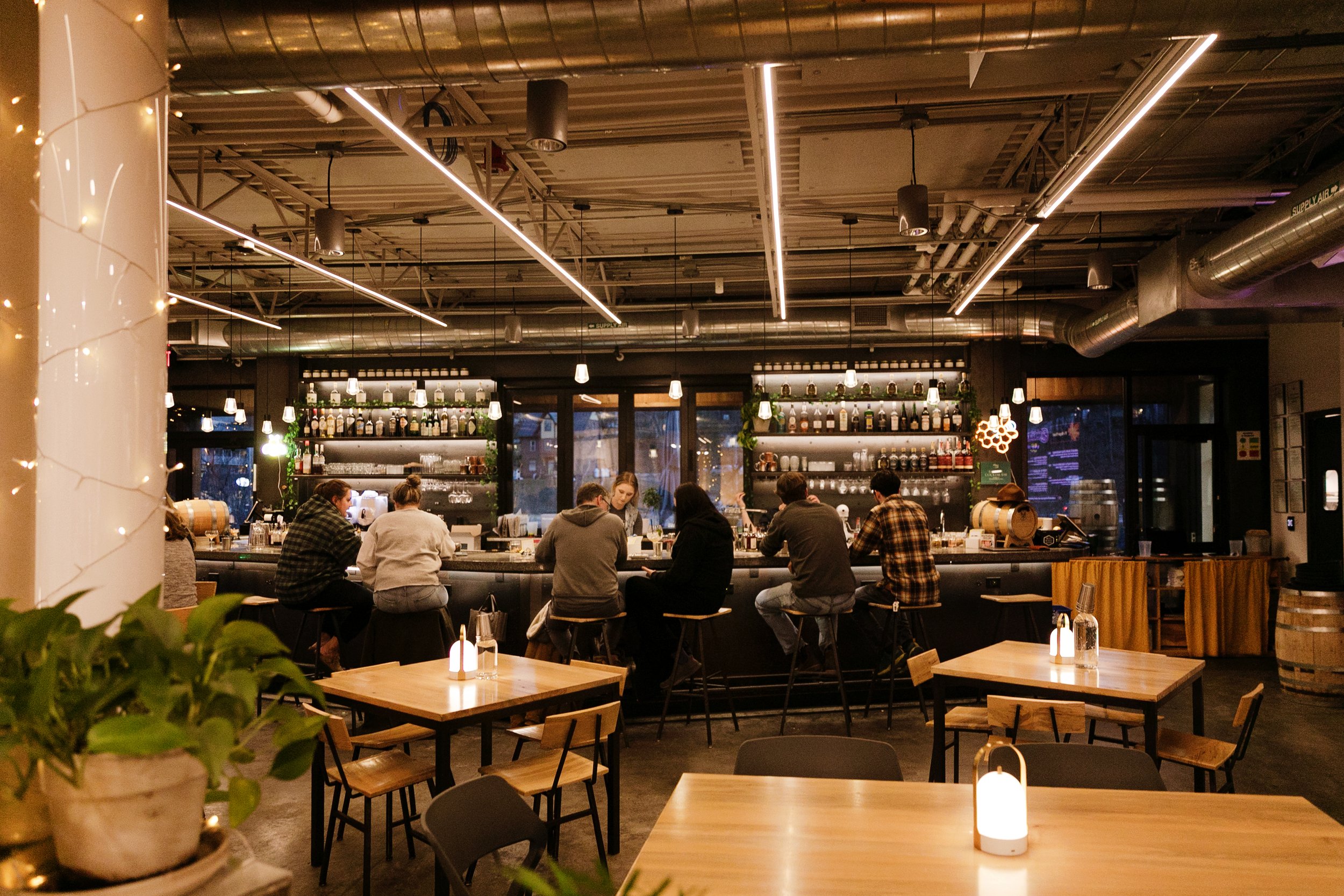

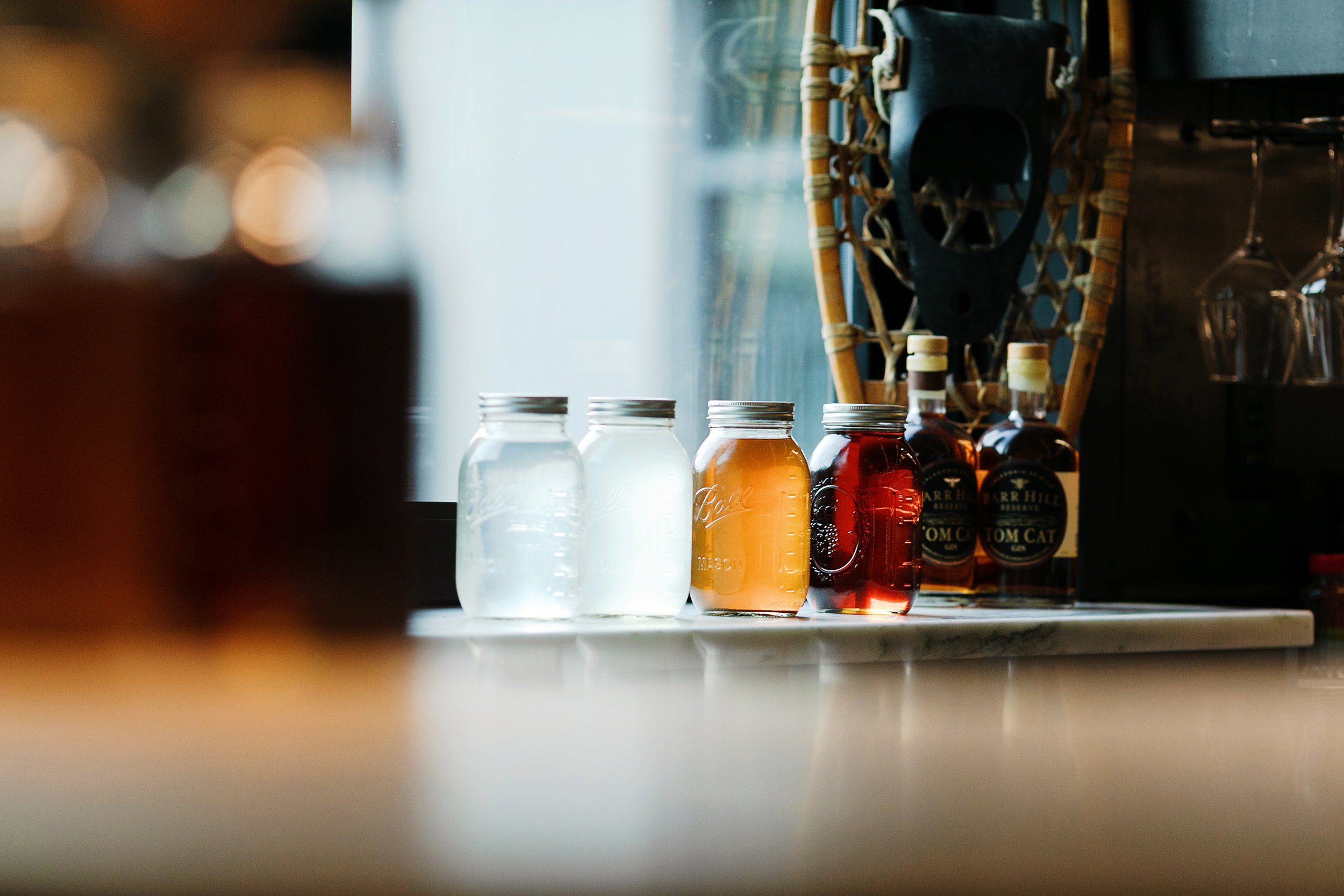
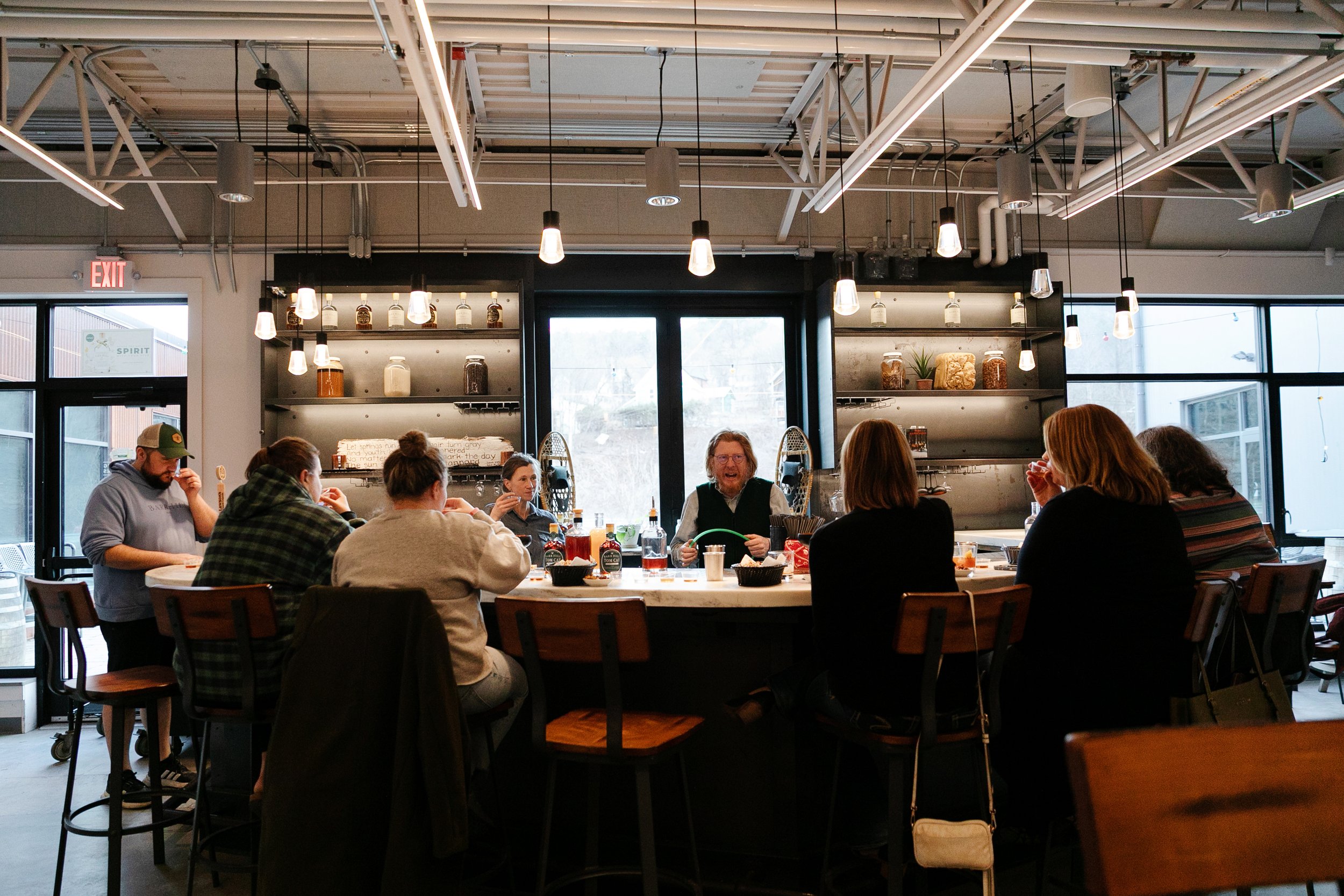


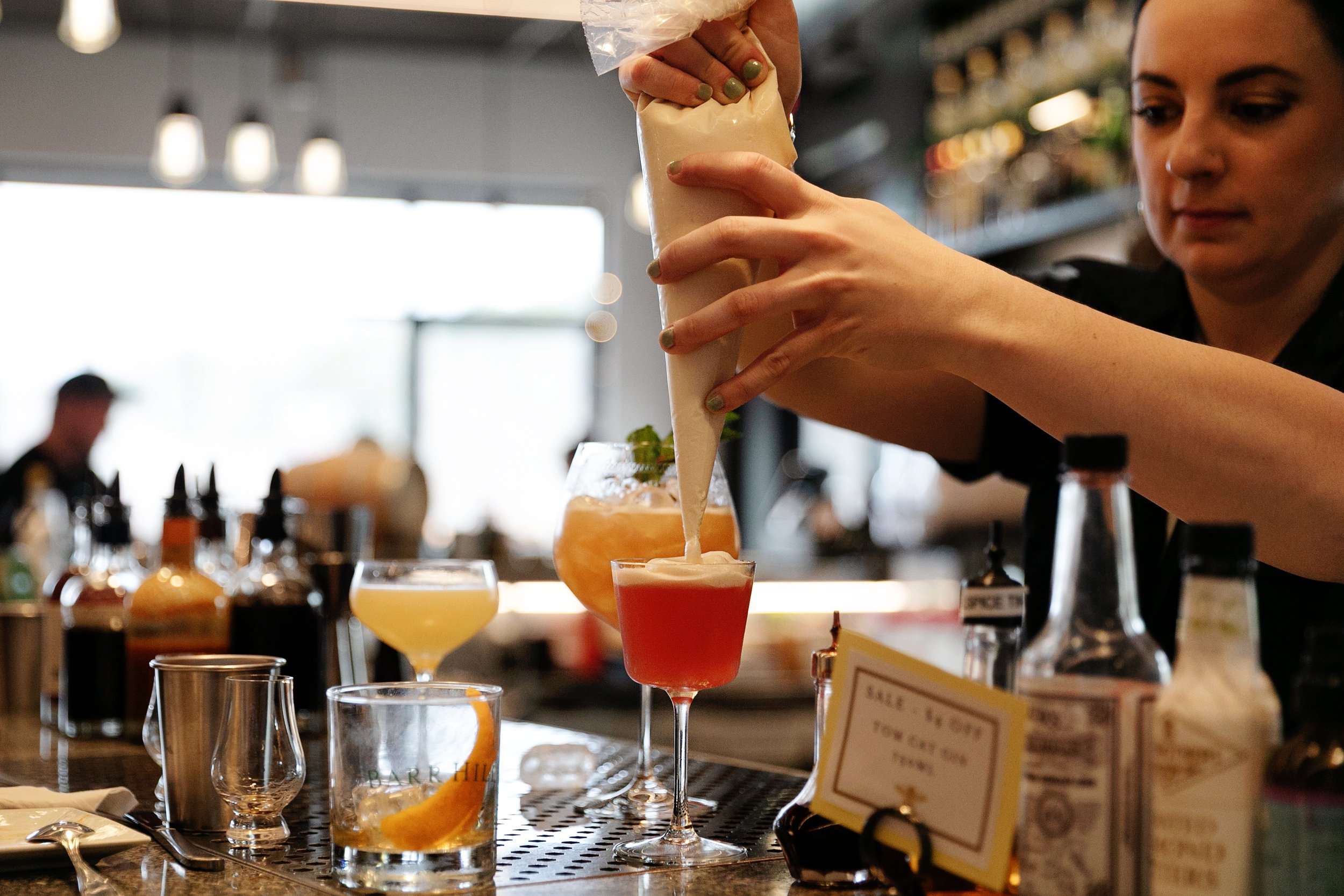



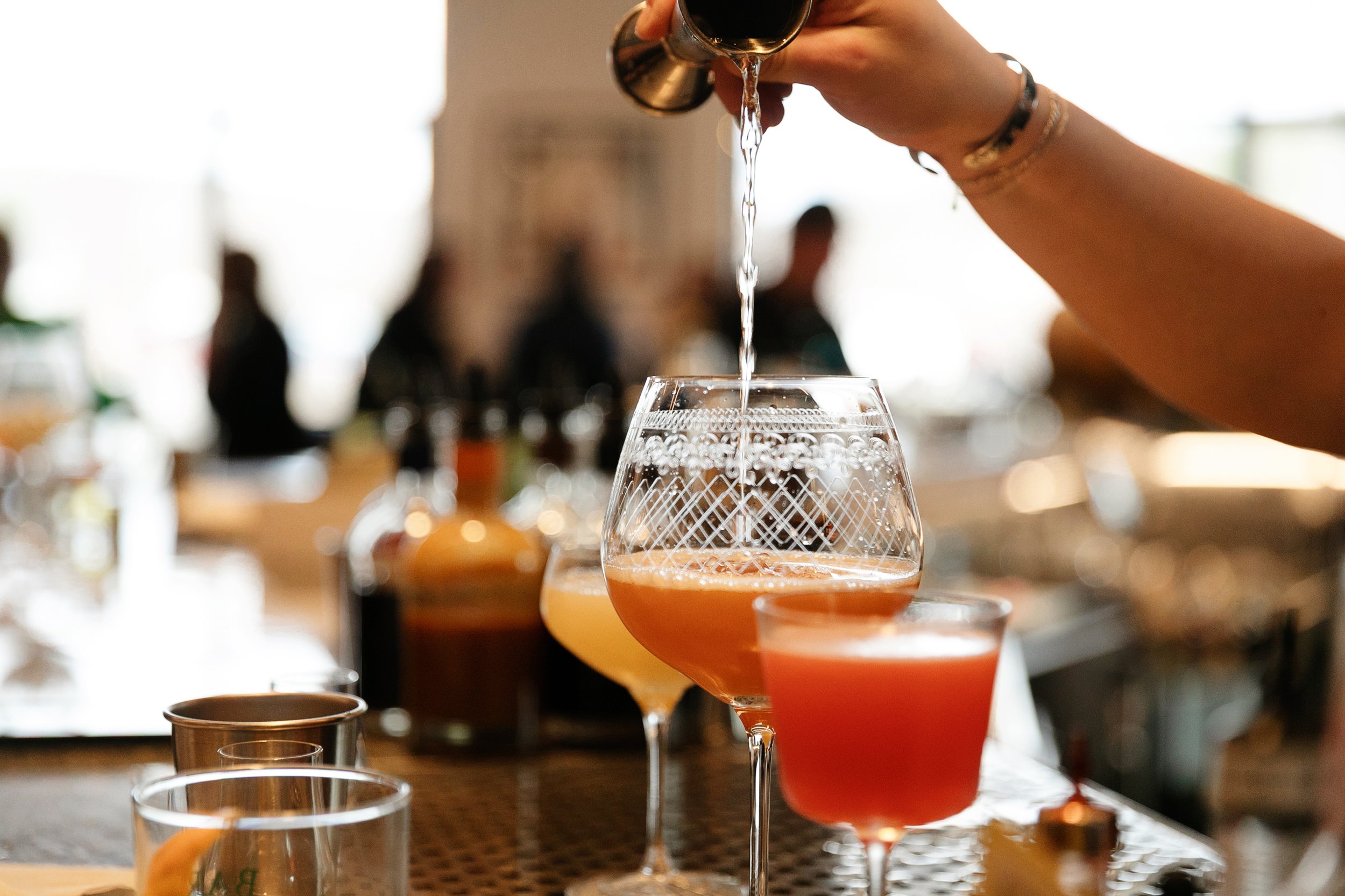
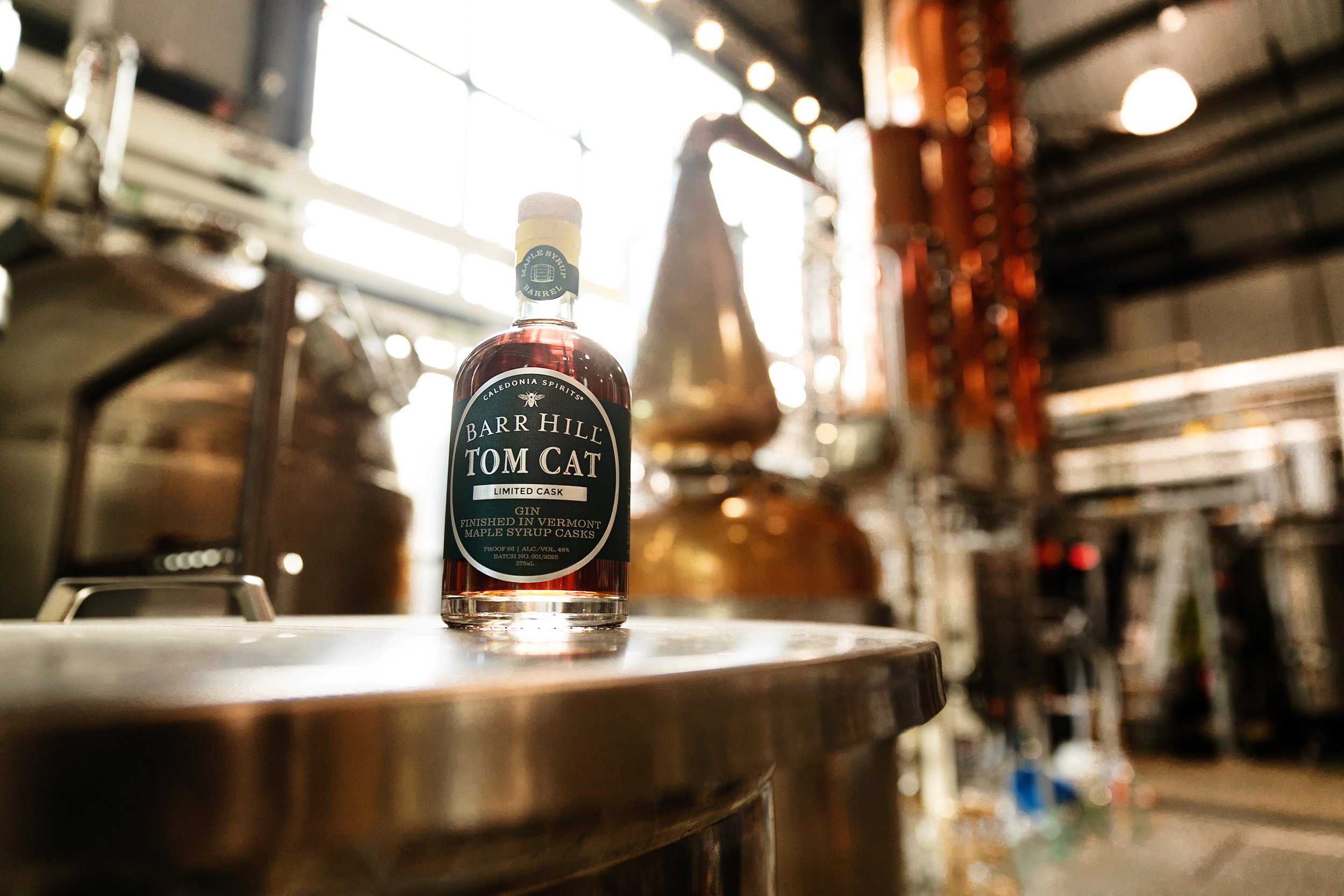


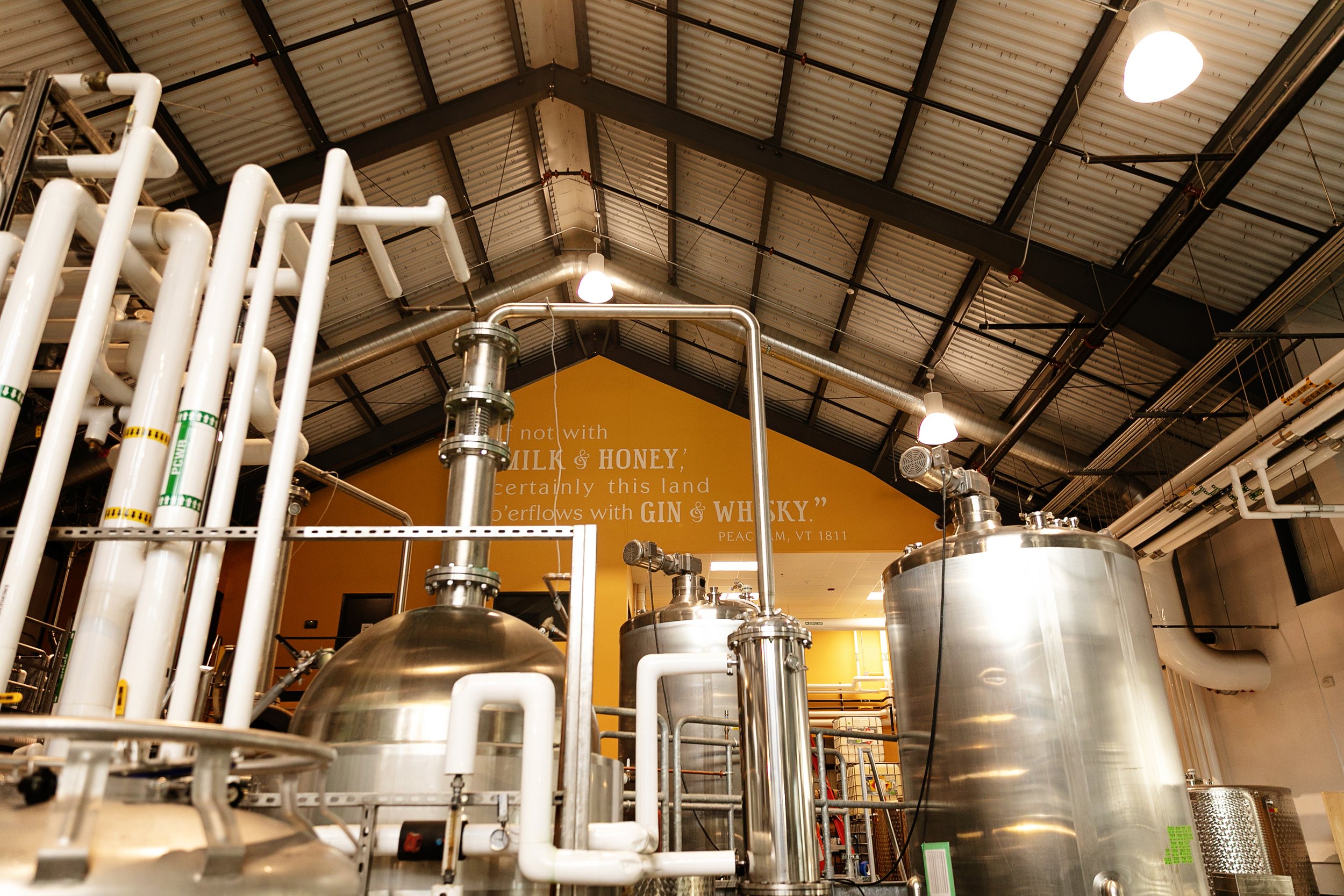

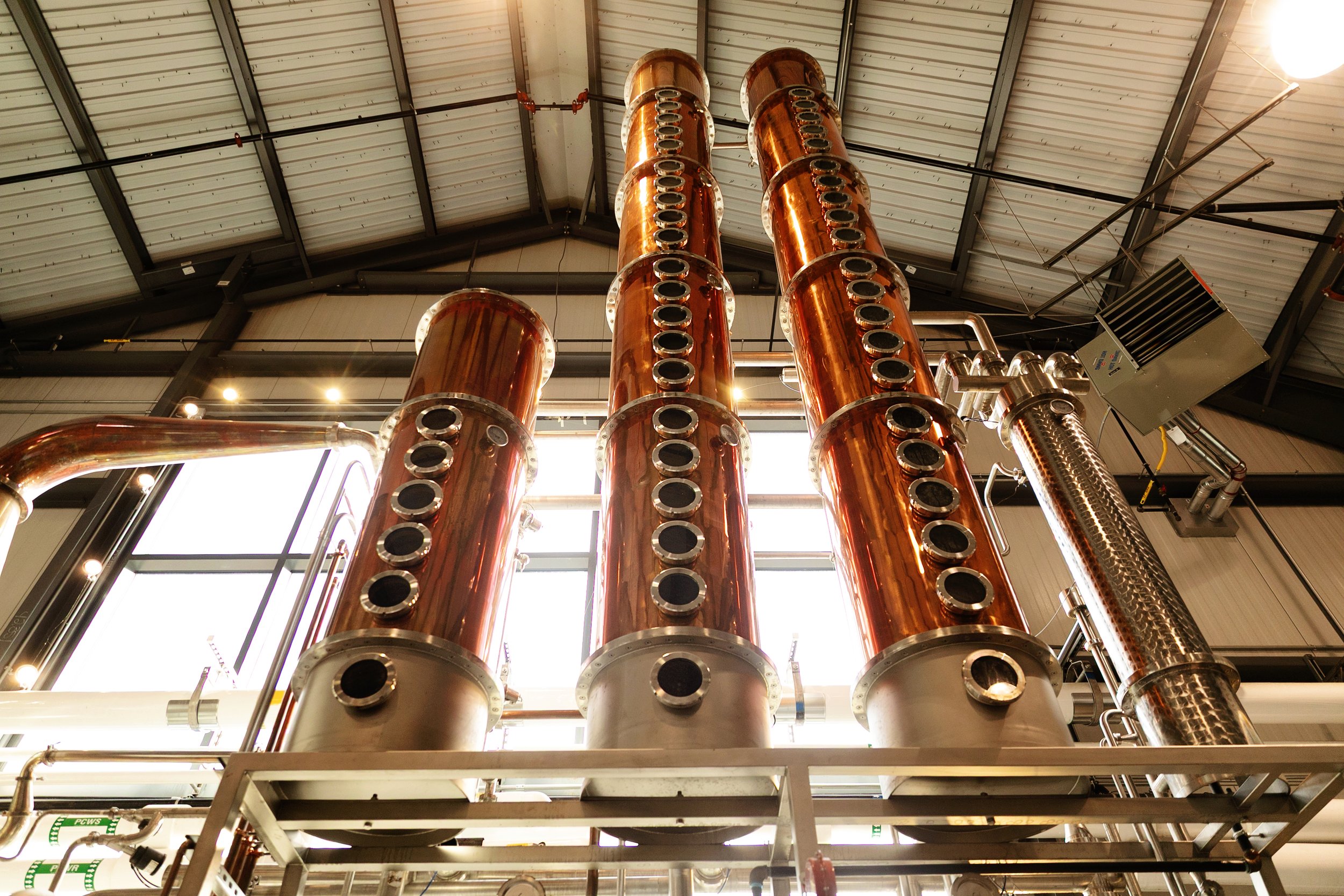
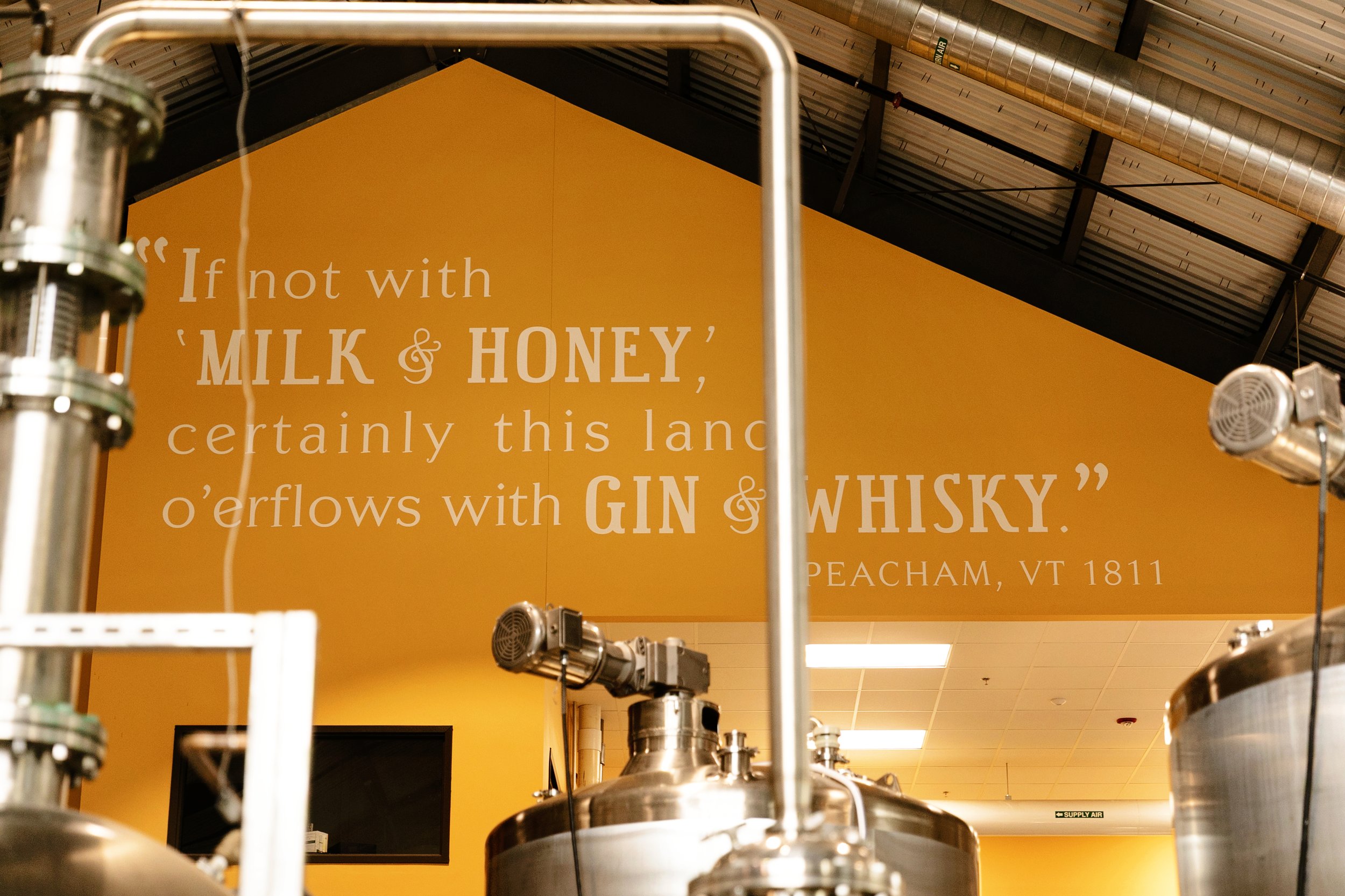









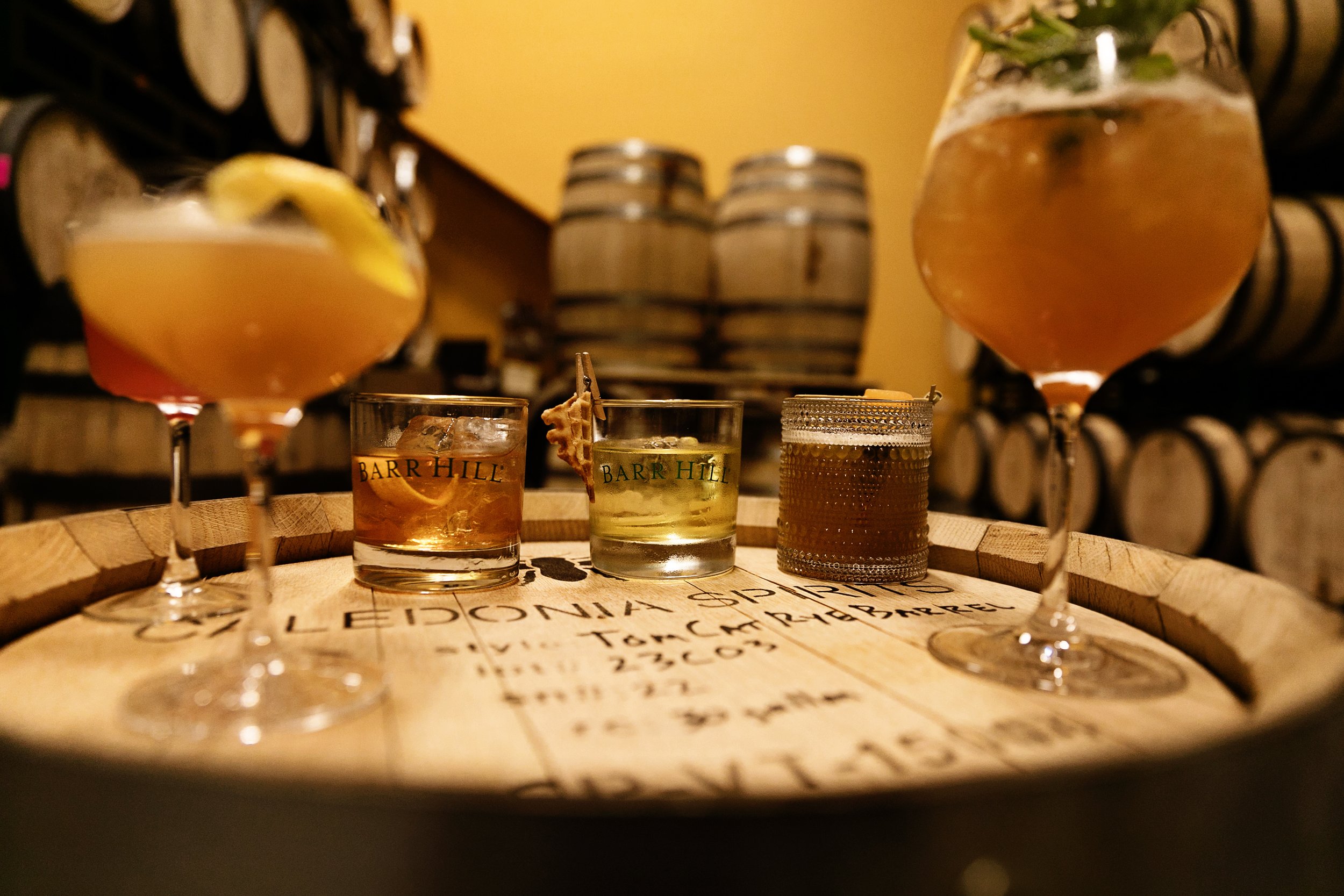
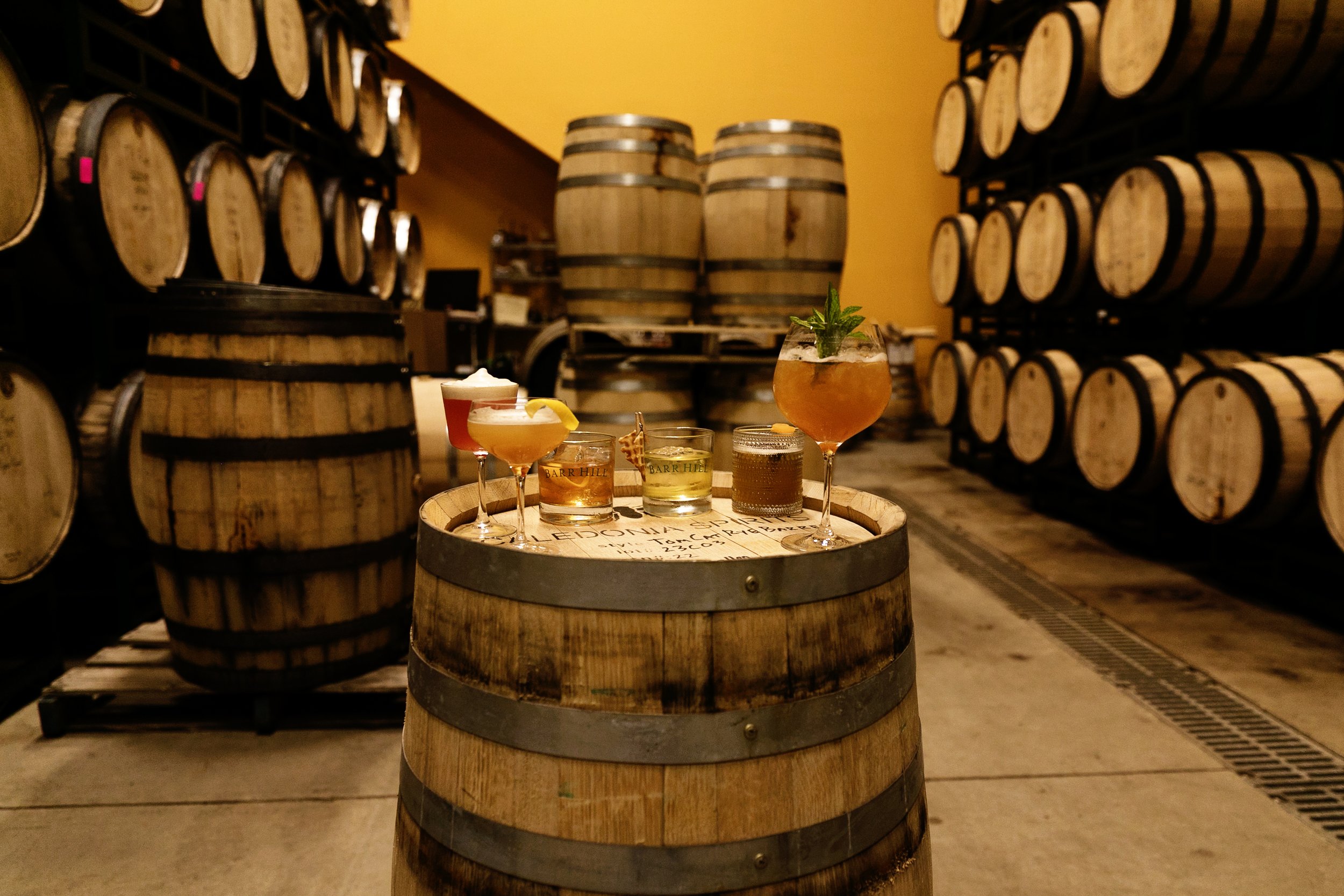
Patrick tells us Caledonia Spirits was “started by a beekeeper, Todd Hardie, and a local homebrew store owner, Ryan Christiansen. Todd is committed to local agriculture, he now runs one of the largest organic farms in Vermont, Thornhill Farm, and also is starting a grain collective to help support local organic farmers, Champlain Valley Grain Center. Ryan, our head distiller and President, is committed to sustainability, local agriculture, and supporting the local economy.
“Our teams at the bar and in the distillery have always valued and featured local maple throughout the year. Our head of retail, Riva Reynolds, is the owner of Stannard Farm Maple Syrup, a wood-fired maple sugarhouse in the Northeast Kingdom. They provide us with maple syrup that we use in our bar for our smoked maple old fashioned, 3 tree tiki, twist of Vermont amongst others, and our food program for our Tom Cat Maple glazed pork belly, smoked maple salmon, and maple-roasted carrots and labneh.”
Patrick told us that Riva, head of retail, also barrel-ages maple in barrels that have previously held Barr Hill Tom Cat Gin. Caledonia takes these barrels, and barrels that other maple makers, such as Sweet Stone in Hardwick, and Runamok in Fairfax, used to age their maple in, and then age their Tom Cat Gin in them once the maple has been emptied. This gives the barrels an extra life, and is used in one of their customer-favorite products, Maple Barrel-finished Tom Cat, sold in the Montpelier store.
Barr Hill has become a popular tourist stop in Montpelier, and events during maple season offer opportunities to join specialists in working with maple in food and beverage.
Rugged Ridge Forest
Worcester’s Rugged Ridge Forest marks the border of our region with Lamoille County.












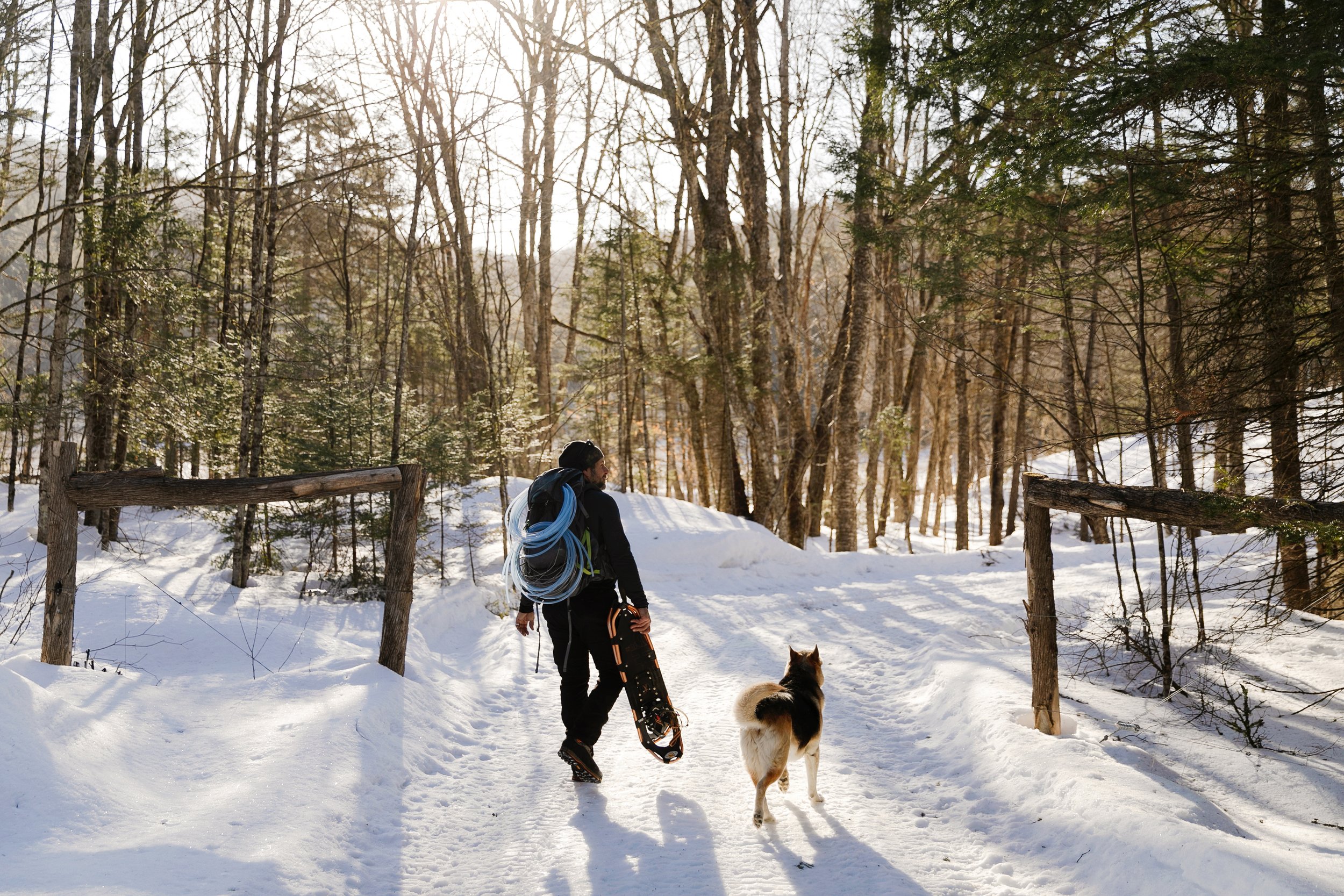


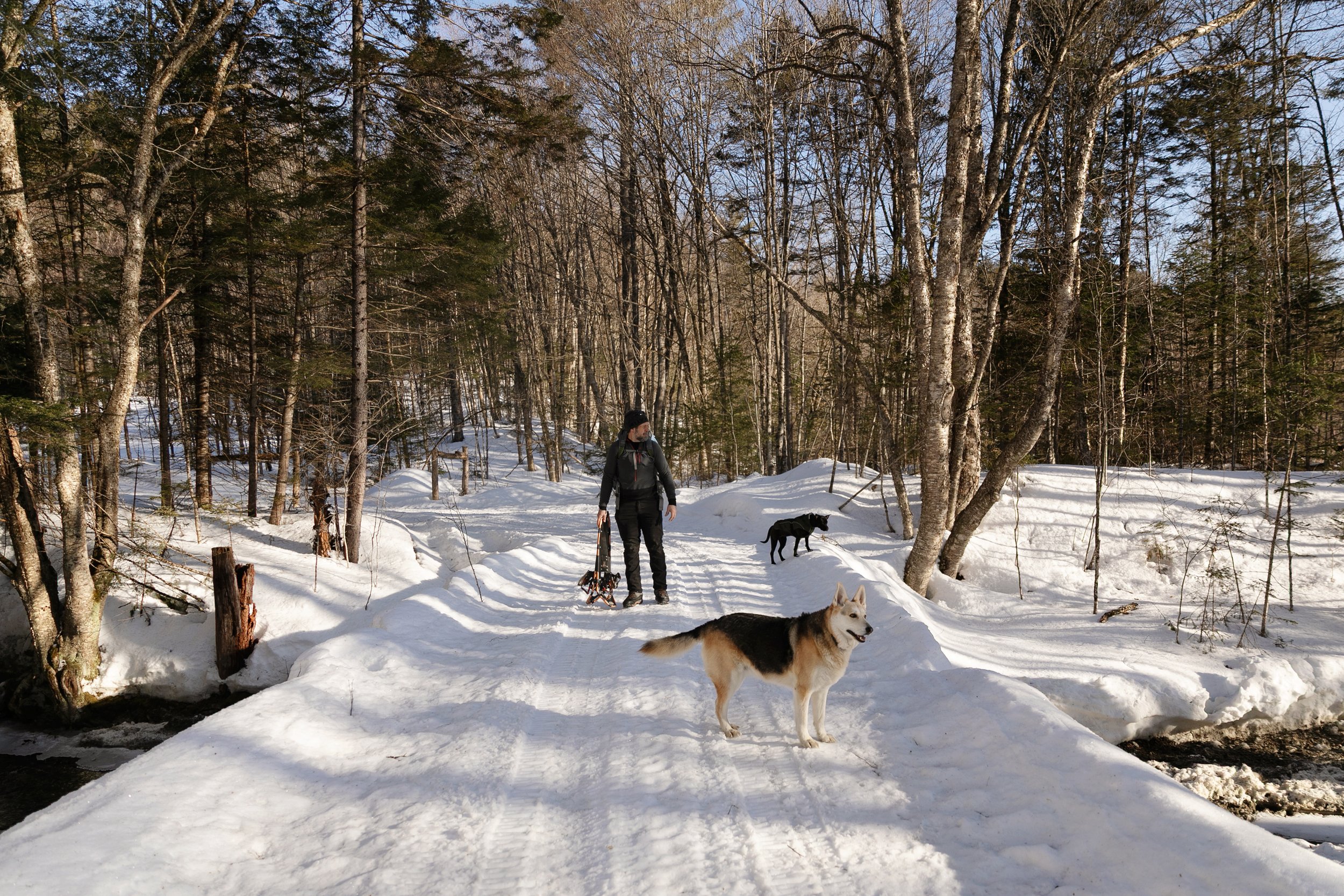
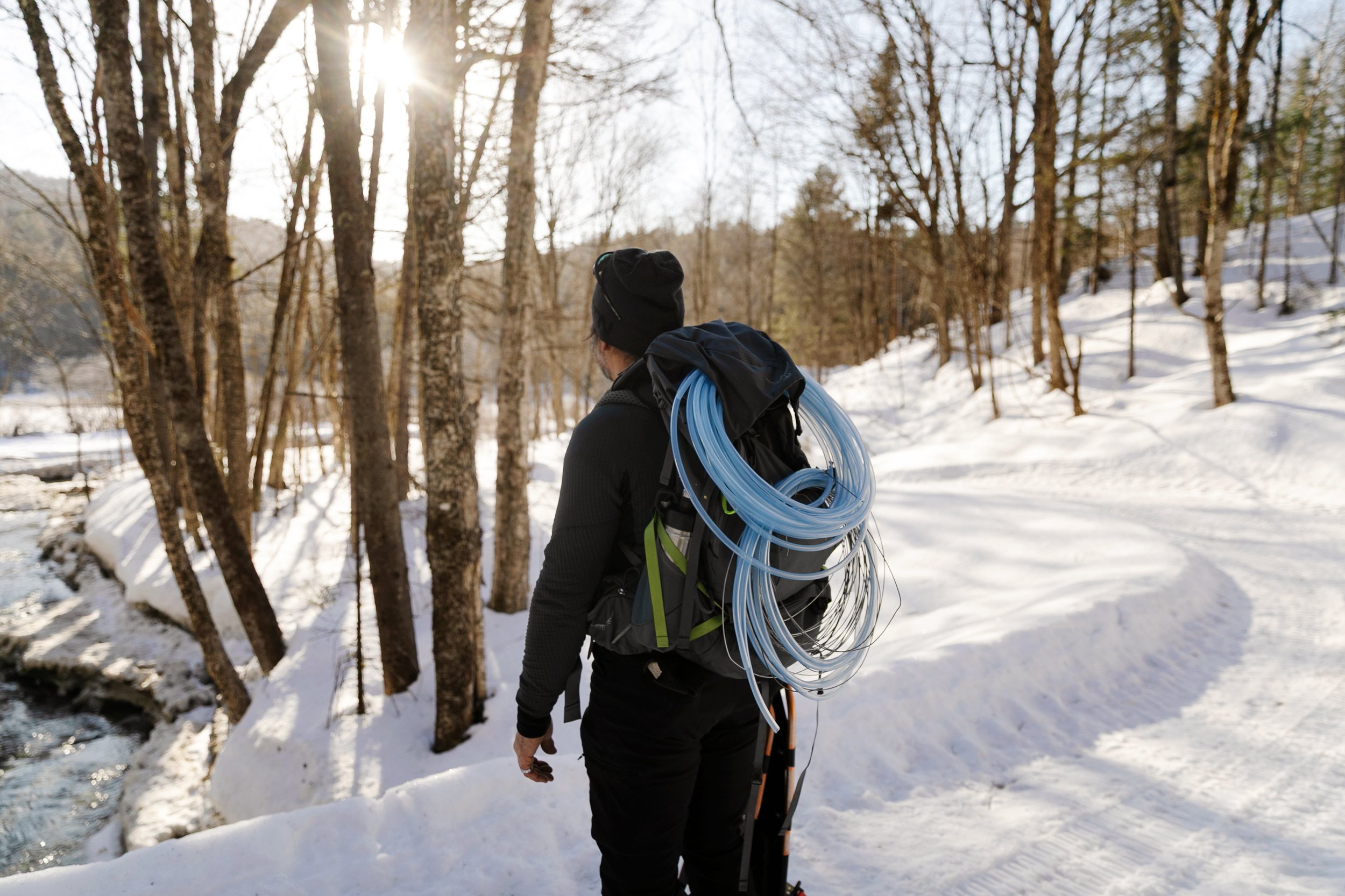

We visited Josh in Worcester on a cold, bright day in early March. He was our first stop on the tour and was happy to educate us on his process, explaining the science of the reverse osmosis in the sap boiling and showing us the equipment involved in his wood-burning syrup production. Right away, Josh started talking about trees. He showed us the wood he collects from his property to burn for syrup production, and the felled trees he’s used to build the structures on the property, including the timber frame sugar shack.
Sustainable practices were present on the farm, including these happy working horses. All the living beings we met at Rugged Ridge Forest were hardworking and brought a serious kindness to their roles on the farm. I asked Josh about his (human) workforce, and he explained that Rugged Ridge Forest’s core team is a pair of full time maple farmers, loggers, and syrup packers. They also rely on some part time assistance in the busy season from out of work tradesfolk, and from Josh’s girlfriend Emma Duffany who balances her life as an ER nurse with part time work around the farm. Josh tells us he is proud to support a couple of households year round through the business.
Josh’s property contains many beautiful species of trees, which he described as he led us on a joyful forest walk. Sunlight filtered through the trees as he described their different qualities. He also told us how he assesses his working lands for their potential uses, explaining his parameters for analyzing a maple’s potential efficiency within the network of taps. Josh told us how his University of Vermont degree had prepared him to find and work the land that became Rugged Ridge, and how he values the longevity instilled in work with trees. The work of Rugged Ridge Forest is of a living permanence.
Other Stops Along the Way
Other stops along the way for Vermont’s maple industry at small Central Vermont businesses.

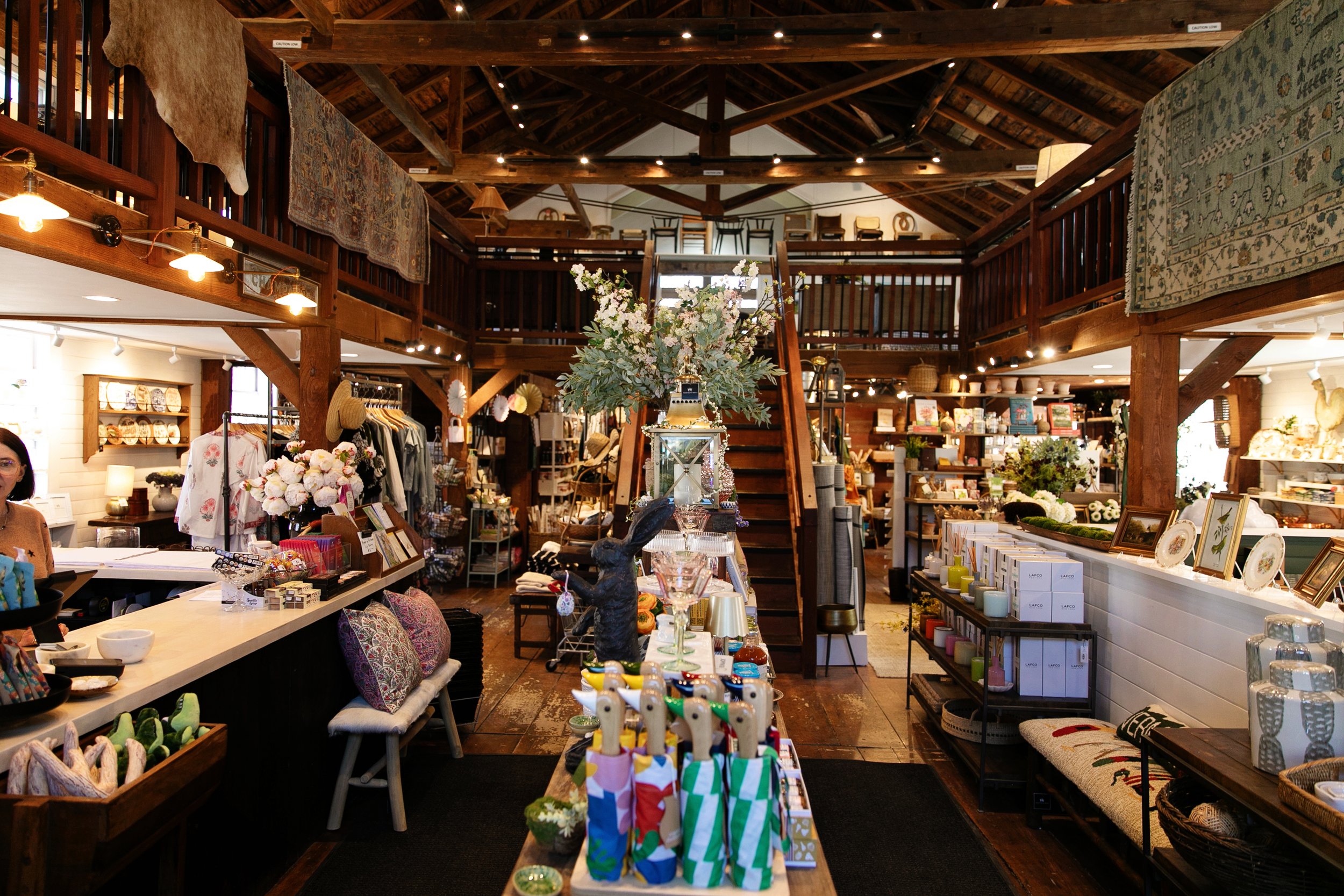
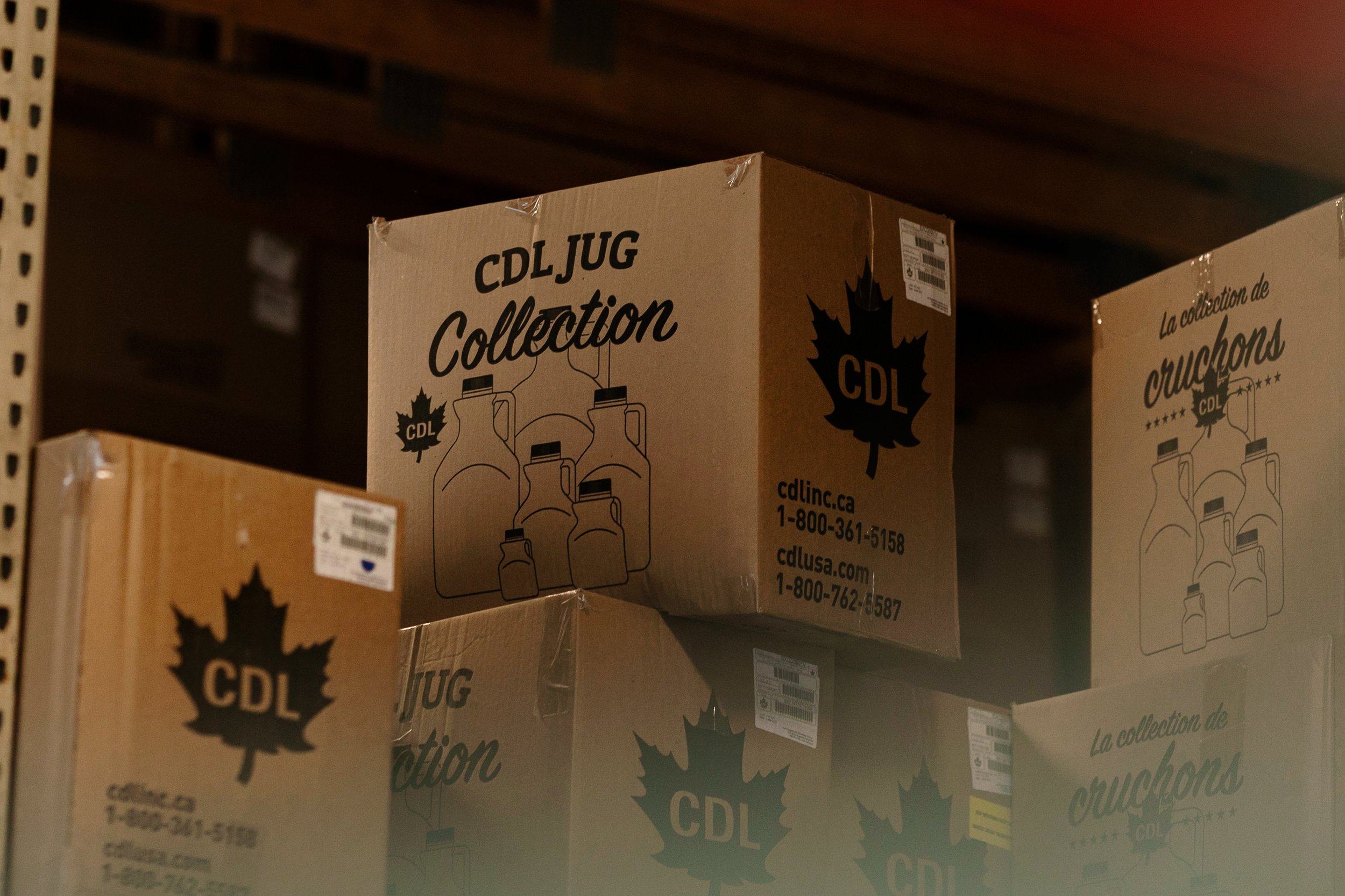
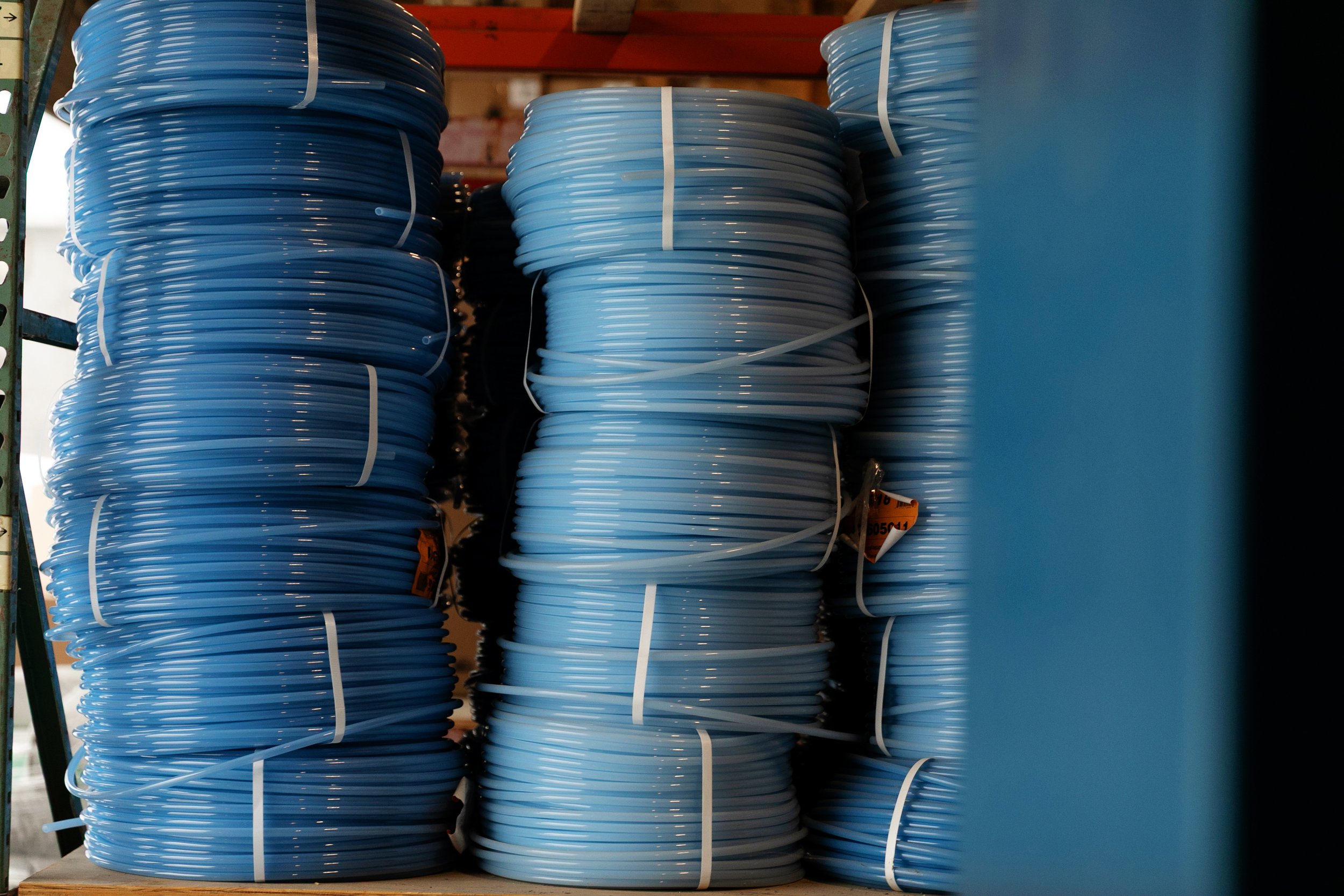




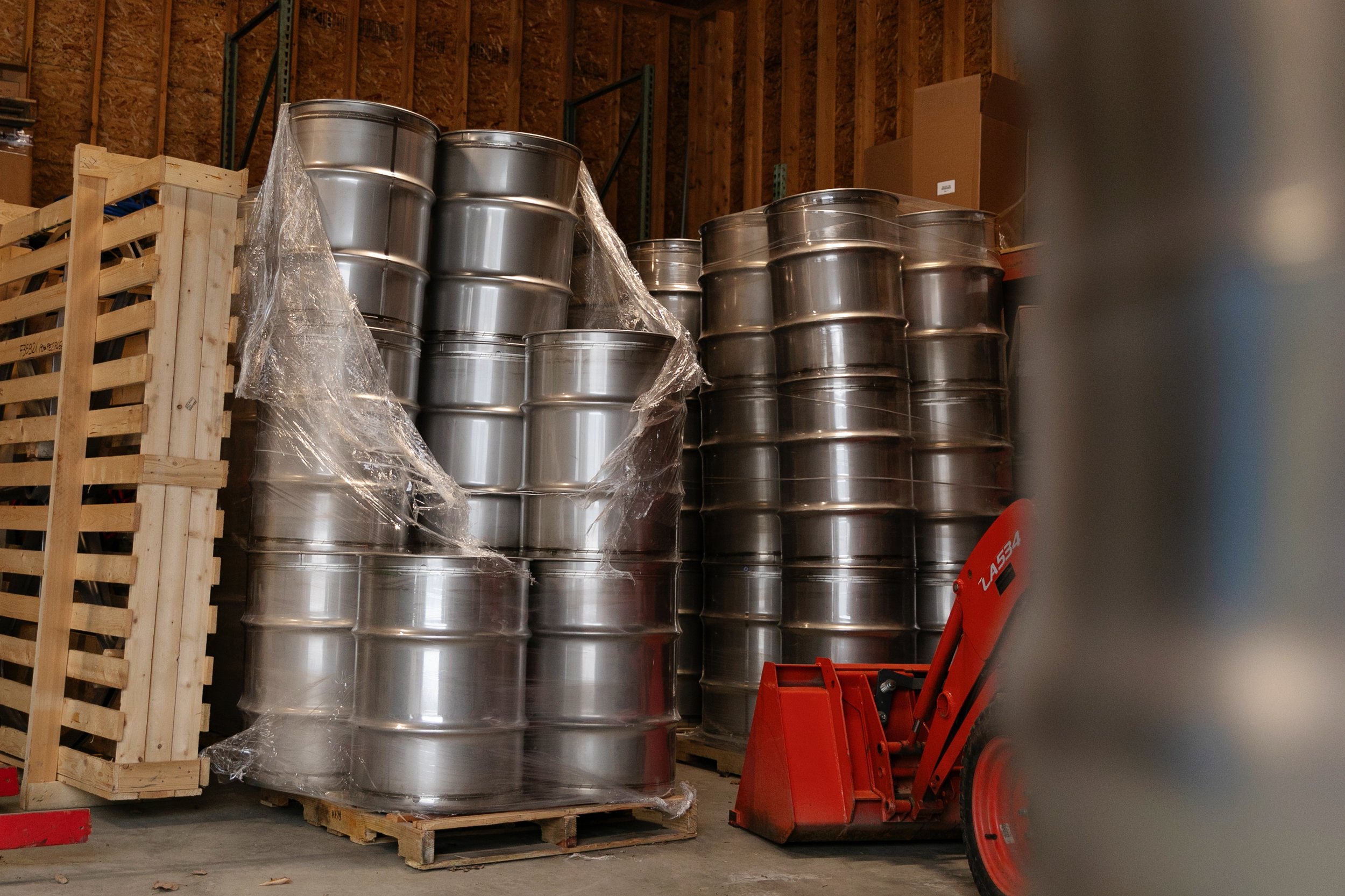



With its flagship store in Barre and additional locations in Pennsylvania, Texas, Georgia, and Minnesota, Miles Supply has been a family business for over 70 years.
They are first and foremost a granite work supplier, and have expanded to supply industrial equipment in all corners of the United States. Here in Central Vermont, Miles Supply, as a CDL store, is the unofficial supplier for the maple industry. The place where you go to get buckets, stickers, and equipment to create your syrup. Of all the places we stopped, this was the busiest!
At Waitsfield’s Addison West, we saw owner Monique Bonner’s particular vision for selling syrup. Monique left a two-decades tech job in 2020 to focus on a small series of home-goods stores. The first is in Middlebury, and she opened the second shortly after. The second shop’s Waitsfield location is in the site of the former The Store.
Monique’s purchase of The Store and conversion to Addison West’s second home was welcome to many Valley residents and visitors who had decades of fond memories and almost-forgotten birthdays with its previous incarnation. She took care to acknowledge and expand on the original values of the shop. Under her eye, some of the perhaps too-sweet gifts of yore have been replaced with hipper, more modern gift fare.
Local artists and products are heavily featured, along with artisan items from independent luxury home brands. Here we saw the famous Runamok syrup at last, sparkling with edible glitter even through its glass. Retailers like Monique are a key part of maple’s success story. A beautiful shop like Addison West tells us a story, and whether we’re dropping in from down the street or six states away, the story inspires us to purchase a little bit of Vermont to carry along with us.





